#(& so the difference of perspective in the oppressed feeling that way & the oppressor using it to self flagellate is v important here)
Text
repeat after me: if you are the descendent of colonizers living on stolen land, you do not get to judge the methods of decolonial resistance movements.
#this isn’t in relation to the last reblog itself it just reminded me of something#thoughts#sarahofmagdelene has some good shorts about this on insta though#like specifically abt how it relates to white feminism + patriarchal notions of (white) womanhood#the skinny of it being that white women tend to impose the standards of white womenhood laid out by white patriarchy onto those who they ar#*womanhood#(sorry all over the place today)#complicit in the oppression of with the added specifically racialized view of violent resistance through the lens of various savage tropes#have to get a copy of her book after the strike tbh#but yeah i think a lot about this in congruence with how authoritarianism is such a deeply engrained aspect of whiteness & how that itself#contributes to the attitudes being discussed here being so prevalent even among my fellow white people who consider themselves leftist or#progressive (& how that relates to how many white people are liberals/neoliberals posing as being farther left than they are)#but if we were to relate this specifically to the last reblog i would like to point out that another part of that is the whiteness frames#good & bad as an immutable either/or binary & the way super fucked up notions of purity play into whiteness#which (not an excuse absolutely not acting like this is still 100000% white supremacist at its core) is what leads my fellow white people t#be so fearful of having current or past wrong doings pointed out as such & why so many are more concerned with being seen as racist than w#the actual racism they perpetuate/garner privilege from#because that means being horrible with no chance of change (thoug oppressed ppl do 100% hold the right to view their oppressors as such#the white guilt this often leads to when self imposed is what leads to attitudes like the article from the last post describes)#(& so the difference of perspective in the oppressed feeling that way & the oppressor using it to self flagellate is v important here)#& all of this is ultimately rooted in the carcerality inherent to whiteness as a social construct#both in terms of the far worse tangible violence imposed upon poc (particularly black people & fn ppl here in canada) & the carceral view o#morality white “culture” imposes upon those white people who are unwilling to fully do the work to divest from whiteness#hope this is coherent#also if any of this is out of line plz lmk#but basically to cut to the chase power (& as a result empowerment of the oppressed) viewed through the lens whiteness has set for it will#always be fucked up & lead to completely racist conclusions about liberation movements for poc#& the reason i mention this in relation to decolonial movements specifically is due to whiteness being an inherently colonial construct it’#*itself#racism
7 notes
·
View notes
Text
Thinking about the Namor discourse, I'm reminded of the Killmonger discourse from back when the first movie came out. Almost everyone agreed that he was right, but that his methods were extreme, and that Nakia had already suggested the same things without the violence. Killmonger's stance was... surprisingly just like Namor's. Basically burn the world, take it over (although Namor seems to have little differentiation between poor, oppressed people of the surface and the oppressors of the surface. At least that's how it seems.)
But there was also this huge rise in fans of Killmonger. He's a cool, confident character, played by a handsome actor, who was fun and cool to watch. He was definitely killed off too soon, though. Marvel had that problem of killing their villains back then, when comics heroes usually encounter their villains many times.
Now the main difference between Killmonger and Namor is that Namor isn't a villain. Killmonger comes from a straight forward villain character in the comics. Namor is an antihero in the comics. He has a long-standing feud with T'Challa and Wakanda, and they clash often for reasons similar to this movie. But Namor isn't supposed to be hated as a villain. He's coming from a completely unique perspective than everyone on the surface. Comparing Tenoch Huerta's Namor to the Namor in the comics, they're very similar in that their main goal is the safety and protection of their underwater society. Sometimes, that aligns Namor with the surface heroes. Often, he clashes with them, either because of his own extreme views (burn the world) or because they're getting up to something that puts Atlantis in harm's way (Talokan in the MCU).
So, when I'm seeing a lot of like... takedowns of people who like Namor, and who are attracted to Tenoch, and comments like "Anything for a sexy face" and "y'all wouldn't do this for a Black man" it feels very much... to me... like unfamiliarity with the character. Namor is a superhero, not a villain. We're not supposed to see him like Loki or Thanos. That's why they've been billing him as "the first Mexican SUPERHERO" in the press tour. He is an antagonist for Wakanda a lot of the time, but that's because Marvel comics are actually quite good at nuances. A lot of characters aren't strict hero/villain archetypes in Marvel comics. Look at Magneto and Professor X, as an example. You're gonna tell me Professor X is a moral good superhero and Magneto is a moral bad supervillain? Especially in the current comics where all Mutants live in Krakoa together and have a society protected from the rest of the world. You're gonna tell me Iron Man is a strictly good superhero? Like, nuance is how the comics work. That's what Coogler is actually really good at bringing to his MCU projects and it's why he's the perfect director to even handle a character like Namor.
Coogler knows how to bring the nuance. It's why everyone loved Killmonger, too, even if we didn't agree with him. (Though some of y'all did.) Nuance shows us why Killmonger wants to do what he's doing.
As far as "wouldn't do this for a Black man" takes... isn't that disingenuous when talking to fans of the Black Panther franchise? It's not like the franchise was small or didn't do well. It was one of the most successful movies of the Infinity Saga, up there with Infinity War and Endgame. Most people in these tags HAVE gone up for a Black man. T'Challa was not lacking in love. Neither was Killmonger. Or even M'Baku. How many oneshots I read about M'Baku taking care of his "vegetarian children" because of that one off, throwaway line "Just kidding. We are vegetarians." (Loved the callback to it in this movie with him eating a carrot while talking to the council!) People liking Tenoch Huerta and thinking his version of Namor is attractive has nothing to do with whether or not people find the Black men attractive. But for what it's worth, THERE'S ONLY ONE MAIN BLACK MAN IN THIS MOVIE and that's M'Baku. Unless you expect a bunch of teen and 20-something fans to go up over the elders on the council. T'Challa has passed, W'Kabi is in jail and never shown, Killmonger does show up for a cameo but that's not a main role. All we get is M'Baku. And people are going up for him, because people love M'Baku. This is a movie about a whole country of badass Black women. The only male characters of consequence are M'Baku, Namor, and Ross.
Namor is just a shiny new character and again, not a villain AND provides representation to an entirely different group of people. People are allowed to be excited to see an Indigenous character in a Marvel movie. It doesn't mean they don't love the Black characters in the movie.
As far as shipping, there's really only two choices and that's Shuri/Riri and Shuri/Namor. It's surprising that y'all are upset about Shuri/Namor, as that ship was obvious. You can dislike a ship without pretending everyone who likes it made it up based on nothing. Media literacy is understanding what a story is trying to do, and the Namor and Shuri scenes before the attack on Wakanda were trying to make you see them as a potential romance. I saw one take saying that they might possibly be switching Namor's obsession with Sue Storm into an obsession with Shuri (which is ehhhhhh and I kinda hope not, but would work with the storyline they're building).
With Riri, you get an easy ship kinda in the same grain as ScienceBros, and they are really good friends in the comics, so that ship is a pretty surefire one going forward.
I don't really like Shuri and M'Baku, but I could see it happening more than any of them in canon. I only don't like it because he reads very "older brother" with her and it would feel like an extreme left turn for them to date. But I could see the movies trying that pairing on some like... "good for Wakanda" stuff.
(Then there's Namor/M'Baku which is really funny, and I like your minds 🤣 Based on the "fish man" stuff alone.)
Anyway I'm getting off track, but basically, I think there's a lot of extreme behavior going on in the tags and I think it really boils down to this being your first introduction to Namor, because there's no reason to be angry with people for liking him. You're gonna have to get used to him, too, because he's a Problem, tm, and I fully expect him to insert himself into so many conflicts and give the Avengers grief, too. And I hope we get a main universe (I refuse to call the MCU 616) Illuminati with him and Strange and them, too.
#marvel#namor#wakanda forever#wakanda forever spoilers#Black panther#black panther spoilers#spoilers#shuri#T'Challa#Killmonger#M'Baku#w'kabi#riri williams
346 notes
·
View notes
Note
11 and 22 if you're choosing violence? 😈
11. number of fandom-related words you've filtered
Answer here! but tl;dr: about 30 or so
22. your favorite part of canon that everyone else ignores
Chantry history!! CHANTRY HISTORY!!!
While the pre-Chantry era (e.g. the Magisters Sidereal, Andraste) frequently comes up both in-game and during fandom discussions, outside of the Exalted March on the Dales, I rarely encounter much talk around the early centuries of the Chantry as an establishment, and how it solidified its political power.
I think this in turn leads to a lot of my major bugbears with Dragon Age fandom, such as:
1. reducing the conflict in thedas as purely a mage vs. templars issue: we now have clear evidence that there's much more happening! the qunari are advancing south! of course, the templars (and mages) were a HUGE part of southern thedas's defenses! while corypheus might have failed in his goals, the entire south is still in. shambles, which leaves them vulnerable to further incursions.
2. speaking of incursions. the qunari. i feel like people sometimes forget that the qunari wars were relatively recent (the llomerryn accords were only signed in 7:84 storm! ~150 years before current events!), and prior to that, they had amassed so much territory across tevinter, rivain, antiva and the free marches that the imperial chantry and the southern chantry had to team up (unprecedented!) to force them back.
anyway we know the qunari are coming back and they are NOT fucking around. i just. haven't seen this discussed much lately? (although please, someone, anyone, if i am missing a conversation somewhere PLEASE let me know. i wish to devour it whole with my eyeballs).
also the codices in the history of kirkwall series mention how instrumental the chantry's mages were in combating the sarebaas during the qunari wars, which is only more incentive for the Chantry to keep a tight hold on the mage population (of the ones who are useful enough to fight wars or otherwise contribute to the cause, that is...)
3. basically, i'm just fed up with how huge chunks of the fandom criticise the worldbuilding and writing, especially when it comes to the interplay of political power.
of course, there are groups that are more complicit in various atrocities than others! but without examining the reasons behind these issues, it's not actually possible to develop viable long-term solutions to these problems. without a thorough understanding of why something came to be the way it was, the oppressed can so easily become oppressors bc. well. power corrupts!! and if one looks at dragon age through a lens of it being a story about geopolitical and the corrupting properties of power, it feels like to me it's very obvious what story the team is trying to tell?
don't get me wrong, of course there are always critiques to be made of how bioware is telling that story. i can understand that there are times where the team fumbles the ball or addresses something clumsily, and i think there are a lot of valuable conversations to be have on these matters!
but it often feels like people are more invested in discussing the game they wished dragon age was rather than the game that actually exists. so often posts that gain traction these days are like 'this is how i would totally revamp character x/event y', and while i think that can be a useful exercise too, it just feels overpowering at times? that like, there's this sense that everyone agrees that the same things are wrong and must be fixed, which is. frustrating. because again, we are all different people with different experiences! we connect with parts of the narrative, different parts of characters! we are all complicit in our personal biases!!
and i feel like there would just be. a lot less defensiveness and hard feelings if people allowed each other more space for alternate perspectives on the games.
my own takeaway is this: personally, i think that dragon age, at its core, is a cautionary tale against hubris, and more specifically, the hubris of any one individual or group thinking they know what's best for everyone. of how, as people, we're more powerful when we're able to put our minor differences aside to tackle the bigger problems. of how everyone is coming from their own experiences and backgrounds and how that impacts their behaviour in the present and future. of how some narratives can be more dominant than others. of how history is never 100% certain.
and in light of this, and the state of dragon age fandom as a whole, i have chosen to view the fandom as an elaborate piece of community performance art (of which i am also a part).
this in turn makes the whole endeavour less frustrating, and dare i say it... sometimes even fun.
[choose violence ask meme]
#oops turned out i have more repressed frustration that i thought!#so thank you for helping me reduce my sodium levels#asha answers#chocochipbiscuit#long post
29 notes
·
View notes
Text
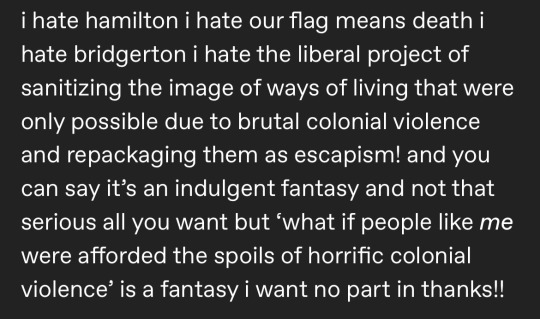
^not my post, take under cut
i was thinking abt this idea of ahistorically "progressive" fiction being harmful and I think.. I am less interested in this lens of viewing fiction than I used to be. I consider it a very normal reaction to be uninterested in the "liberal project of sanitizing colonial violence" and I believe that the cultural privileging of stories that superimpose images of marginalized people onto the roles of oppressors over stories about how those marginalized people were resisting indicates that the dominant culture does want to foreground their narrative and will adapt in many ways to keep their ideas alive - but I also know that marginalized people have always had many layers of identification and relationships to the concepts represented by historical fiction that permeate our culture most deeply, and it feels so bleak to say that we can't morally explore these identifications without first and foremost fully representing the depth of our abjection. I think lots of people have talked about the inability of fiction to serve as moral authority or even education, and about how the perceived moral imperative for poc to acknowledge abjection and oppression all the time can further degrade our sense of resilience and dignity. as far as my personal taste, I judge a piece of "historical" fiction on how well it explores and connects the concepts it purports to find identification in. not to say I need all my historical fiction to be highbrow, to cover all ground, or even be nuanced! I just want a coherent internal viewpoint. Sometimes the conceptual gap between the story's take and the actual events it's chosen to represent is too big and jarring, and the conclusions that the story presents come off as delusional or projected - this is how I feel about hamilton, I have no idea how the telling of american history from a founding father's perspective particularly serves its central aim of remaking history to include oppressed peoples, and it perturbs me that this is hamilton's answer to "who lives who dies who tells your story". I don't feel this way about all "sanitized" narratives, bc they aren't all contriving to retell history in an "inclusive" way, they're interested in different ideas that don't have to do with making a statement on historical narrative itself. It feels normal for people who intimately know what it is to be desubjectified to be drawn to the dignity and preciousness of courtly romance, or to bond-making amongst those who exist outside the law. I'll never pretend that these identifications aren't loaded or fraught, but it feels both reductive and like a bad faith assessment of your peers/of yourself to assume these multiple fascinations boil down to a power fantasy of being in the oppressor position. I guess I am interested in what value, if any, the post-colonial psyche would find in these identifications - would history and identity begin at the point of total decolonization? Does everything before that point no longer serve us? Is our yet to be decolonized present even serving us? I don't really want to refute op's stance or even disagree with it, but if we're accepting the project of critically analyzing pop culture thru the lens of identity representation I do want to keep following the thread that's there
anyway please don't @ me if you have a grad degree in media studies or something this is off the top of my dome and I've never seen bridgerton so if I'm very wrong abt it well! then I'm very wrong
6 notes
·
View notes
Text
.
Abuse as a Form of Oppression
A home where a woman is abused is a small-scale model of much larger oppressive systems that work in remarkably similar ways. Many of the excuses an abusive man uses for verbally tearing his partner to shreds are the same ones that a power-mad boss uses for humiliating his or her employees. The abusive man’s ability to convince himself that his domination of you is for your own good is paralleled by the dictator who says, “People in this country are too primitive for democracy.” The divide-and-conquer strategies used by abusers are reminiscent of a corporate head who tries to break the labor union by giving certain groups of workers favored treatment. The making of an abuser is thus not necessarily restricted to the specific values his society teaches him about men’s relationships with women; without realizing it he may also apply attitudes and tactics from other forms of oppression that he has been exposed to as a boy or as a young adult and that he has learned to justify or even admire.
If you look at any oppressive organization or system, from a racist country club up to a military government, you will find most of the same behaviors and justifications by the powerful that I have described in this book. The tactics of control, the intimidation of victims who try to protest, the undermining of efforts at independence, the negative distortions about the victims in order to cast blame upon them, the careful cultivation of the public image of the oppressors—all are present, along with many other parallels. The people in power generally tell lies while simultaneously working hard to silence the voices of the people who are being dominated and to stop them from thinking, just as the abusive man strives to do. And the bottom line is the same: Oppressive systems stay in existence because the people in power enjoy the luxury of their position and become unwilling to give up the privileges they win through taking advantage of other people and keeping them down. In short, the abusive mentality is the mentality of oppression.
The connection among different kinds of power abuses can add greatly to the stress experienced by an abused woman. If you already face discrimination as a woman of color or if you are a low-income woman or a lesbian, you may feel overwhelmed at times by how similar the control and abuse from your partner feel to other forms of oppression you have endured. Some abusive men even deliberately take advantage of their partner’s social vulnerabilities. I have had several clients, for example, whose partners are undocumented immigrants whom they have threatened to have deported if the women ever disclose the abuse. In some geographical areas you can find supportive services for specific groups of abused women, such as immigrants or lesbians, or locate agencies where there are staff people from your background who understand the additional challenges you face.
…
Changing the Culture
Abuse is the product of a mentality that excuses and condones bullying and exploitation, that promotes superiority and disrespect, and that casts responsibility on to the oppressed. All efforts to end the abuse of women ultimately have to return to this question: How do we change societal values so that women’s right to live free of insults, invasion, disempowerment, and intimidation is respected?
…
… Promote alternatives to abuse and oppression by recognizing how intertwined different forms of abuse and mistreatment are. The opposite of arrogantly defining reality is listening respectfully to each person’s perspective. The opposite of placing yourself above other people is seeing them as equals. The opposite of establishing a hierarchy in which the top few people lounge comfortably while everyone else gets squashed is sharing resources. The opposite of madly scrambling to the top, whether it’s the top of the corporate ladder, the top of the softball league, or the top of the household pecking order, is building communities devoted to cooperation and support, where everyone wins. To consider a world without relationship abuse is to open up to even more profound possibilities, to the potential for human beings to live in harmony with each other and with their natural environment.
- WDHDT
#repost of someone else’s content#book#currently reading#abuse#authoritarianism#hierarchy#oppression#misogyny#domestic abuse#patriarchy#racism#classism#lesbophobia#anti capitalism
5 notes
·
View notes
Text
Why the Hunger Games is still relevant
Or, The Hunger Games as a critique of the industrial war complex, the American empire, and exploitation of nature.
Officially, the Hunger Games is a YA dystopian science-fiction series, but it provides an accessible way to understand eco socialist theory, if you approach it in a certain light. I don’t know if you’ve ever sat down and tried to read Marx’s Das Kapital, or other political theory, but it’s... very dense, convoluted.
The Hunger Games is about the exploitation of workers and nature by an oligarchy who is determined to keep the workers impoverished to prop up their lifestyles.
The American Empire and the Industrial War Complex
With Ballad of Songbirds and Snakes, I think we can really note the imperial core vs periphery that is central to these stories. The Capitol is (obviously) the imperial core, with the upper class at the head. Within the imperial core, there are workers, but these workers are protected from some of the brutality that the periphery (districts) are subjected to, and there’s degrees. District 12 is largely ignored, while District 11, on the periphery, feels the constant wrath of the imperial core.
District 2, meanwhile, is one of the “pets” of the imperial core, has absorbed a lot its culture, including Roman-style names, and they tend to celebrate the games vs revile them, developing a more Spartan-like culture. The imperial pets, despite being oppressed themselves, having to participate year after year in the Games, celebrate their oppressor, and are given some “treats” as a result - they behave, they do as they’re told, and they are rewarded for it. All the districts are - but 2 is more likely to toe the line than, say, 12. Even so, the Capitol continues to look down on people from District 2 - like Sejanus.
Sejanus is not from the Capitol, he is a “District person”, he will never be fully accepted in the imperial core - no matter what he does. The humanity of the people from the districts is not fully seen by the imperial core - they are there to entertain them, to make consumable products and even be the products to consume (as in the case of Finnick). Sejanus realizes this over time, of course, and he is punished for this realization. When Sejanus develops a sort of class (district-ers) consciousness after trying and failing to be seen as fully human in the Capitol, he is punished for it.
The rest of the Districts - the non-career ones especially, tend to see the Capitol’s pets as being more privileged than the rest of them, and that’s not without reason - they do get more “treats”, even if they all have to compete in the Games - there is an unfair advantage, but the very idea that the Careers are not also oppressed divides the Districts, keeps them fighting one another as they argue over scraps. It isn’t until Mockingjay, when the “pet” - the most privileged district, but still ultimately oppressed - finally develops that class consciousness and turns against the Capitol, finally realizing what Sejanus had all those years ago: that the Capitol will never see them as truly human.
Why is this relevant? Because the American empire uses war to retain a dominant position. Because the American empire exploits workers overseas and in America to prop up the lavish lifestyles of the upper class. Because workers today fight each other about whether those striking “deserve” better pay and conditions - because they’re not as oppressed, they don’t work in sweatshops, completely missing the point that we’re all workers. Yes, it’s important to note the different ways we are exploited - but exploited we all are. And exploited we will remain if we do not change.
The Exploitation of Nature
Panem exists because of a climate catastrophe sometime in their distant past - or our future - wherein nature is not seen as having any rights of it’s own, but was a “thing” to be used, controlled, and exploited - the Descartes “mechanical” perspective.
In Panem, the Districts are forced to work the land to extract resources and create consumable products for an oligarchy. This system is re-inforced through violent suppression of any attempt to change the status quo. Sometimes, working this way even poisons or kills them outright - particularly in 12, in the coal mines.
The Capitol seeks to control nature through engineering - creating arenas for games, literally making fire appear of out nowhere, and even life itself - mutts. The mutts are a perversion of nature, humanity’s attempt to control it. But nature constantly resists attempts to control it - as the rebels delivered false messages via the Jabberjays, the Mockingjay was born out of nature’s own resistance to attempts to control it. The Mockingjay symbolizes both nature and workers respective resistance to the capitol.
Katniss. A plant name. Katniss is connected to her environment, not alienated from it, like most. The Capitol has fences built around the wilds, only allowing Districts to have a pre-approved relationship with nature, when it benefits the Capitol to extract resources. But Katniss hunts, she knows her environment, and is then able to weaponize the berries - Katniss will not die at the hands of the Capitol, a piece in their games, forced to kill Peeta. If she’s going to die - it will be at the hands of nature - the berries - not manufactured for consumption, entertainment. And it is this connection with nature - with this refusal to submit, to be tamed and control, that makes her a symbol - a Mockingjay, like her pin.
The series ends with Peeta and Katniss re-establishing a connection to each other, as humans, no longer forced to be a piece in the Capitol’s games, but also - to nature. Katniss hunts, Peeta plants and tills the Earth. Even Haymitch has his geese, as District 12 comes back, re-grows, and establishes itself - able to connect to their environment, to each other, without the imperial core dictating their relationships to each other and their environments.
Why is this relevant? Because workers get mercury poisoning and companies get away with it. Because we’re experiencing climate change so the rich can have mega yachts. Because we’re completely out of balance with nature and will continue to be if we don’t change our perspective of nature as “thing”, of ourselves as separate from nature, instead of part of it.
Conclusion
The Hunger Games is still relevant because the American empire continues to exploit workers worldwide, continues to exploit nature, and continues to barrel us towards our doom. If this doesn’t change - if we don’t end the industrial war complex, if we don’t stop fighting each other and demand real, actual, change, the catastrophe will happen.
We can choose a path before it’s chosen for us. If we choose Peeta’s path - the dandelion in the spring, we choose Hope. We choose peace, and we can try to change things before everything falls apart.
The Hunger Games is still relevant because it urges us to choose the Dandelion in the Spring - to hope for a better world, and to make one.
11 notes
·
View notes
Note
@ ur post about becoming really obsessed with ONE bajoran. is how i feel, in the voy episode where tabor is introduced it also brings up (some of) the horrible things cardassians did. and that made me go like “oh literally who fucking cares about cardassians actually." and became far more infatuated w bajorans as a whole (and my initial interest in sito as well). being obsessed with two-episode bajorans is the way to go honestly
yeah it’s like. ok I’m gonna ramble here bc it’s what I do but
at least in ds9 specifically (can’t speak to voy yet bc the only one I’ve seen so far is seska and. well.) the cardassian characters are written with nuance, and even the most horrible ones have moments where you’re supposed to see them as more than flatly evil, and they all have distinct and personal motives, all of which I think is great. from a story perspective it’s way more compelling, and I also think fictional exposure to, say, “guy who has a couple redeeming qualities that he can point to as not being a bad guy but nonetheless is a whole entire fascist” is good for critical thinking and being able to identify people/rhetoric like that irl. and then there are characters like garak where ymmv but he’s definitely intended to be generally likable despite the elements we know of his past and some beliefs he hasn’t entirely disengaged from yet (I do struggle with “things past” aka the Former Cardassian Oppressor episode because frankly I don’t think it’s well written from a character perspective but it also can’t be completely written off, but that’s another post that I have in drafts somewhere). so like. yeah. obviously people are going to engage with these characters and, to varying degrees, like them.
BUT there does seem to be like. some fandom drift towards engaging with the complexities of cardassian characters but not so much with bajoran characters. there are often other factors that play into that, some of which start with the show’s writing of individual characters, but which also include things like misogyny (I know it’s more nuanced than this, but I do not think the treatment of the two main series antagonists would be so different if winn was a hot guy) and like. whether or not there’s a convenient m/m ship. and I think at a certain point of immersion in that culture some people—not all! but some—end up kind of disengaging from the entire reason we’re here with either of these species at all, which would be the 50 years of colonial occupation and genocide. in really extreme cases, you get the people who absolutely do not give a shit about the oppressed people in this scenario and start asserting that dukat did nothing wrong and that clearly the bajoran occupation wasn’t actually that bad, which is like…objectively incorrect even divorced from real world associations lmao. like i know it’s fictional but your critical thinking is subpar and i find the lack of empathy a smidge concerning.
and I get that those things are often challenging to engage with on a large scale and often abstract level, especially if you’re not from a culture that has experienced a similar kind of victimization. there’s a reason personal memoirs or historical fiction focused on one character are often the ways dark subjects really click on a personal level, even if maybe a factual statement of numbers should horrify us more. I think finding a bajoran character that you really care about, either by getting invested in a main one, putting in the effort to flesh out a side character, or literally just making up an oc if you really need to is a way of kind of keeping that in perspective, because you can’t really avoid engaging with the realities of the occupation the way you might if you really only examine the cardassian characters in any kind of depth. I’m obviously not saying anyone Has To Do This since we’re all just dicking around online for fun, and trying to restrict how people interact with media is pointless, but I just think it’s good to like. yknow. also give a shit about the victims of the occupation that represents the entire premise of ds9, and the life hack personal relevance speedrun is to just get obsessed with one random bajoran.
i feel like this ended up coming out as a lot more of an absolute moral statement or something than I really intended it to be and i also have articulated parts of it very badly but tldr I think it’s good to remember the context and events of the universe you’re working within, and having a random bajoran character that makes you feel absolutely insane is a really good shortcut for that. ttldr everyone make more sito jaxa content please im begging you.
#ive been trying to put any of this into words for like a week and it's still not exactly what i want to say lmao#every february i experience february insanity which is where i go insane every february and cannot put any thoughts together well#ask#splashtail
5 notes
·
View notes
Text
Blog #3: Taking A Stand Through The Arts
The conflict between Palestine and Iran is known throughout the globe. However, I had minimal knowledge or background of what is truly going on between the two countries. Watching the movie “Slingshot Hip Hop” opened my eyes to the state of Palestine and it led to me yearning to learn more about the current condition of Palestine.
The documentary film I viewed gave me a new perspective on the pressing issue. The people of Palestine are restricted from movement, education, and freedom. They’re even being discriminated against by calling them terrorists or suicide bombers due to their looks and the Language that they speak. The basic rights we have in our normal everyday lives are being taken away from the Palestinians as if they aren’t human beings just like ourselves. I find this very discouraging as people are discriminating against each other and stereotyping certain races and ethnicities.
Despite the saddening and disheartening truths I realized in the film, I saw how the Palestinian people continued to fight back against their oppressors for their freedom. I admire the bravery of the people to go against armed trained soldiers with only stones and rocks which shows that they’re ready to risk their lives just to keep fighting for their freedom and the freedom of their country. I also express admiration for the Palestinians who thought of a different way to fight for their freedom, education through hip hop. They took something they enjoyed and they made it more meaningful not only to themselves but to their fellow Palestinians. They made songs and raps not only for leisure, but to inspire and educate their people. Watching the film was really enlightening as I learned more about the situations in Palestine and how much it differs from the life a human being deserves.
In making the zine, I had zero ideas on what to do. I’m not that much of a creative person, but some certain scenes in the film really stuck onto me so I decided to put them in my zine by drawing the scenes that piqued my interest and attention. There were three main scenes that until now I remember: the reason why they made the group DAM, the walls being built around Palestine, and the state of the school library. After finishing the zine, I showed it to my friend from NU Nazareth that I’ll call Franz. At first he didn’t understand so I explained each page of it.
First is the ‘parts’ of DAM which is 30% hip hop, 30% literature, and 40% Palestine. I loved this short breakdown of their group because of their patriotism. Like I mentioned before, they turned a hobby of theirs that they enjoyed and turned it into something more. A medium of inspiration to their fellow Palistinians who are also going through the same scenario as them. The next part that really stuck with me were the walls of Palestine. Unlike America who planned to build a wall to keep out mexicans. The Israeli soldiers built walls to keep the Palestinians inside trapped, effectively trying to imprison a country. A line from that scene that I can still remember was “I feel small next to these walls, not because of its size but because of the power that made the walls.” Even if they manage to break down the walls, they can always be rebuilt as long as they are still being oppressed by the Iranians. They know that in order to regain freedom they have to solve the source of the problem first. Lastly was how the military used the library of a school claiming that there was “no space” in other areas. Which really shows that they try to keep Palestine from its rightful freedom by sabotaging their future which is education. Education is the weapon each individual has the right to own. It is the way for an individual, community, and a country to develop into something greater.
As a student who is given the opportunity to forge my weapon, I’ll need to sharpen and strengthen all areas of my blade so it will not crack or break under pressure. Knowing my strengths which are mathematics and weaknesses in English and literature. I will maintain the sharpness of one side and continue to work on sharpening the other. It is one thing to be creative or critical while it is something else to be creative while still delivering critical details especially in response to social issues. Creating a zine helped me think of ways in being creative, while still delivering my main critical point. Overall, I gained more information and realized the importance of knowing issues not only in the country but other countries as well.
0 notes
Text
We need to talk about intersectionality again.
I see a lot of people debate on here about transphobia/homophobia/misogyny/etc. but a lot of the time while they may disagree on some things the general consensus is things like misandry and white racism aren't real because men/white people aren't an identity (as in they're invisible, people don't say they're proud whites or proud men without sounding incredibly bigoted). This is wrong. Flat out. Incorrect. If me saying "white people is not an identity" upset you, then good, you understand at least a little. Because it is actually an identity that people can identify as without having to feel guilty about it.
But here's the big thing, people have more than one identity. People can be black AND gay and their experience will be unique based on experiences they share with similar black people and gay people, but not all of their experiences will be shared from either group. This is easy enough to understand. So then when we have white gay people, do they only get to claim experiences from the gay community? No, we all know and understand this. Their experiences come from being white AND gay AND every other identity they have. Because people all aren't just one thing, even those people who make one thing their whole identity. They still experience things from all the other identities they have at all times.
This is kinda what makes Taylor Swift's version of feminism tone deaf for a lot of other feminists, because she's experiencing misogyny from a high class perspective while most of us aren't high class. This is why intersectionality is important.
But earlier I said that things like misandry and white racism are real, even though most of Tumblr is programmed to believe they're not despite being super liberal, TERF, far-right conservative, or basically anywhere else on the political spectrum. (Because "oppressors" cannot suffer from bigotry or some shit). Here's the thing, if you believe gender is a social construct, the patriarchy is a social construct too so the oppression is a reflection of that society. News flash, not every society is the same. Some cultures experience stronger identity roles than others, with all sorts of power imbalances built in and people in those cultures can and do fight any kind of imbalance they find unfair all the time. Ours is no different.
So why would we then purposefully exclude usage of words for particular instances of societal bigotry based on our own subjective understanding of our own society? I bet some of you would say things like "but I'm not part of another society, I'm a part of this western colonial society rooted in Europe and the Americas" or "because you're full of shit and this power imbalance is singular/universal". But, for the first point, how would we then accurately describe an observation from another culture, or describe such an observation to someone of that culture? For instance, if we were talking about misogyny/misandry to say the Amazon women, they may feel just as strongly that misogyny isn't a thing as we do about misandry, that men and women being assholes to other women is always an individual issue and never rooted in the roles of their society. If this were the case, our understanding and communication of these ideas would utterly fail as we've handicapped ourselves into only being able to see other cultures through the lens constructed by our own, with all the same biases and social structures that we ourselves believe to be universally true. This ties well into that second point, which is that such structures are actually NOT universal and believing so is only hindering yourself and your own understanding of them across all cultures.
Another way to think of it is about how malleable we tend to believe they are in the first place. Every time someone says "destroy the patriarchy" we are talking about changing our societal structure. We want to remove gender roles given to men and women which inherently give men power over women (such as making men the typical breadwinners and the head of every household). So why stop here? Why do we only believe and want some aspects of our society to be malleable but others are immutable (sometimes even being the same thing, as in this case, specifically referring to power imbalance between men and women in social structure. Why are we able to "destroy the patriarchy" but men cannot suffer societal injustice, when they both literally are cause-and-effect related)?
And another thing, if someone who is firmly set in their own culture moves into another culture, let's say with their family or whatnot, would they then be forced to change how their family power dynamic is described? Taking the Amazon women as an example again, say that it's typical for men to be like little househusbands there and an Amazon family moves to the US, granted they'd probably be welcomed pretty well here but wouldn't the casual misandry from that Amazon culture still apply in their situation? Would that not still be misandry even if it's in a different culture?
And last point, just because someone develops a strong prejudice against a whole group that's typically known as an oppression group doesn't mean they can't be labeled an appropriate -ism or -phobia for that group. There's an individual prejudice and a societal oppressive structure to each one of those words. You can describe a racist as someone who adheres to racist social structures just as well as someone who innately hates all black people just the same, and we can use context clues to figure out when some individual is described as a specific type of bigot versus just someone maintaining a status quo of societal oppression. And, tying in to intersectionality, every social group or any way to divide/categorize people has a potential for it's own discrimination, as described by a specific -ism or -phobia word. Even if in the context of our own society there is a plain lack of oppression for that group.
0 notes
Text
Non-Jewish friends, y’all might be wondering right now: Israel is doing clearly unacceptable shit to Palestinians. So, why are some Jews ardent Zionists, and why do some Jews seem to feel personally attacked by criticism of Israel?
A lot of (non-Palestinian) non-Jews have asked me where I stand on Israel/Palestine over the years, apropos of nothing, just because I’m Jewish. For the longest time I felt so stuck because I just didn’t know much about Israel/Palestine and what little I did know turned out to be largely misinformation and I felt so much pressure to say The Correct Thing That All Jews Should Say About This Issue. Obviously the violence Israel is committing against Palestinians is horrific and the interpersonal weirdness individual Jews might experience as people discuss Israel’s horrific violence doesn’t compare. I’m making this post as a small supplement to the important conversations going on about what Israel is doing to Palestinians in East Jerusalem, Gaza, and the West Bank, as well as Palestinian citizens of Israel and Palestinian refugees and their descendants living outside land Israel controls. I’m making this post because non-Jews might be feeling confused by conflicting messages about Zionism as either settler colonialism or Jewish self-determination. It sucks feeling like you have to choose only one oppressed group or another. It’s possible to support Palestinian liberation and Jewish liberation at the same time! Here’s some context that might help.
Palestinian friends will probably want to ignore this post, y’all shouldn’t have to deal with your oppressors’ feelings, and especially not right now.
Zionism is the ideology behind the devastating violence Israel is committing against Palestinians right now and has been committing against Palestinians since 1947-48. It’s heartbreaking and messy to talk about this reality, because Zionism originated as a strategy to protect Jews from antisemitism.
Any oppressed group can turn into oppressors under enough pressure, because humans are flawed. Jews fleeing antisemitism turning into Israelis ethnically cleansing Palestinians happened because Zionism is profoundly influenced by its time and place of origin: 19th century Europe.
Europe invented antisemitism, and basically every European country has done at least one very very bad structural antisemitism, like expelling all the country's Jews (the monarch and/or the church then stole all the wealth the expelled people had to leave behind), looking the other way when peasants murdered a bunch of Jews as an outlet for their frustration with the actual (non-Jewish) ruling class, banning Jews from owning property or holding certain jobs or being members of guilds etc, and of course the big horrific state-sponsored mass-murder operations the Inquisition and the Holocaust. From the 1790s through the 19th century different European governments emancipated their Jews, ie removed legal barriers to full citizenship and economic participation. But this didn't end antisemitism. Just like the legal improvements of the 19th and 20th centuries didn't end antiblackness in the United States.
Also happening in this time: nationalism swept Europe. From the French Revolution through the end of World War I, Europe’s predominant form of government transformed from multiethnic empires to nation-states, countries led by and for a particular ethnic group.
So this Austro-Hungarian dude Theodor Herzl came up with this idea for Jewish nationalism. Every other European ethnic group is getting their own country, so why not Jews? Maybe this is the solution to antisemitism! Maybe we’ll finally be safe if we just all move en masse out of Europe to a place that will take all of us and never expel us!
But also also happening in Europe and around the world in this time: European imperialism and white supremacist settler colonialism. Chattel slavery saw its height and then its end (legally, at least) during this era, but white supremacy entrenched itself across the planet in post-slavery economic practices and cultural imperialism as well as national and international laws.
I believe countries have a moral obligation to take in as many refugees as they can squeeze in. International law protecting refugees has evolved a lot over the past century, but we’re still devastatingly far from every refugee getting a safe place to call home, and the main reason for that is white supremacy. The Biden administration didn’t undo the Trump administration’s horrifically low cap on refugees until like last week and it’s because Democratic party leaders treat centrist white people as more valuable voters than the huge and growing numbers of people of color, immigrants, LGBT people, unmarried women, and working class people who want to vote for elected leaders who get that nobody’s free until we’re all free. Ahem. Back to the topic at hand, the US and many other countries turned away untold numbers of refugees fleeing the fucking Holocaust, so odds are slim they’d be more welcoming in less desperate times. Moving from places where Jews are an unwanted minority to places where Jews are still a minority and either still unwanted or little understood and unlikely to win revolutionary levels of support from a largely non-Jewish public seems like a bad plan.
In the mid to late 19th century, lots of Jews took the kernel of Zionism and ran with it in different directions. Maybe this ideology could mean Jewish cultural flourishing alongside stronger political/economic integration into the societies where we’re already living! Maybe it could mean a particular kind of socialism that advocates for the liberation of Jews both as Jews and as workers! Maybe it could mean a revitalization of Jewish religious practice both in Jerusalem where we have important heritage sites and everywhere we live across the world!
Eventually Herzl’s vision of Zionism won out over the others: Jewish nationalism in the sense of a Jewish nation-state, a country that has a Jewish demographic majority and/or that legally privileges Jews over non-Jews.
Problem is, if you want to do that, you have to find a piece of land on which to do it, and Earth was already a pretty crowded place a hundred years ago. Many locations were considered, and the one that ended up winning that debate was Palestine. Where a shit ton of people, mostly non-Jews, were already living. They were forming their own nationalist movement at the time: in the waning days of the Ottoman Empire they began to organize for local self-determination in Palestine.
The Herzl types who developed Zionism as an ideology and built institutions to advocate for and create a Jewish ethnostate in Palestine were a small subset of European Jews, mostly men, mostly with significant economic privilege within what Jews were able to achieve in their particular societies at the time. They were just as Orientalist as the non-Jews around them, just as antiblack, just as racist generally for all that Jews were (and sometimes still are) considered non-white in much of Europe. They had a cool idea (put a lot of effort into something that could protect Jews from antisemitism) floating in a bathtub full of shit, and they did practically nothing to protect the cool idea from absorbing that shit. Results of this include thinking about the millions of people already living in Palestine as if they were either like the rocks and the trees that will go with the flow and accept a new ruling class, or indistinct Arabs who would just leave for other Arab countries because what could be the difference — in the staggeringly small amount of time they considered the existing residents of Palestine at all.
This racist hand-waving extended to Zionist leaders’ attitudes about Jews outside Europe as well. White Jews in settler colonies like the US were largely anti-Zionist at the time (not wanting their own countries to accuse them of dual loyalty was a common reason) but European Zionist leaders took what help they could get from Jews in the US, South Africa, Australia, etc. Jews across the Middle East and North Africa, however, barely heard from Zionist leaders about any of this until Zionist militias had removed enough Palestinians from the land and it was time to repopulate it with whichever Jewish bodies were convenient. You might have heard "all the Arab countries expelled their Jews in 1948" but lots of first-person accounts tell a different story of Israel coercing Jews who’d lived securely for a long time in places like Morocco to immigrate to Israel and then confiscating their passports and forcing them to live on less-fertile land with fewer resources while serving as a buffer between Palestinians and European Jewish immigrants. Ella Shohat is the best-known writer on Israeli racism against non-European Jews and I strongly recommend Sephardim in Israel: Zionism from the Perspective of Its Jewish Victims as a starting point to learn more about this.
Which brings us to today. We still haven’t eradicated antisemitism, several European governments that did a lot of structural antisemitism they still haven’t made meaningful reparations for get to feel good about themselves for “giving the Jews a state” as if carving up the former Ottoman Empire was up to them and not the people who lived there, and millions of people across the world who previously either lived peacefully enough alongside Jews or hadn’t really thought about us much at all now have very valid reasons to be pissed at this country that claims it represents all of us.
Zionism was supposed to protect Jews from antisemitism. And Israel has saved Jewish lives! But if we hadn’t sunk the past 70+ years into an ethnostate we could’ve been putting that energy into other political and economic activity to create adequate international support for refugees while we work on ending root causes of refugee crises, like antisemitism, racism, climate change, and capitalism. Meanwhile Zionism has killed, maimed, incarcerated, stolen from, traumatized, and erased the history of millions of Palestinians just because they happened to be living on land that some dudes who had a lot more in common with Thomas Jefferson and Donald Trump than with you or me decided needed to be cleansed for a Jewish ethnostate.
White nationalists in the US love Israel because they want American Jews to go away. Fascist leaders across Europe love Israel for the same reason, so much so that Israel’s prime minister is buddy-buddy with Trump and the equivalent shitstains of several European far-right parties. And I don’t know what it’s like in other white supremacist countries that are close allies of Israel, but the overwhelming majority of Zionist lobbying that pushes the US to give so much aid to Israel comes from Evangelical Christians, because they believe all the Jews have to be in the Holy Land for Jesus to come back. No thanks.
This whole thing fucking sucks. Jews and Palestinians, like all human beings, deserve to be free. Many Jews are understandably afraid of what might happen next if Israel decided to give up on ethnonationalism, allow Palestinian refugees to return, make reparations, and establish a pluralistic democracy that represents and protects all its residents — will some Palestinians murder Jews in revenge? That’s genuinely fucking scary. And it’s genuinely fucking scary to be a Palestinian in Israel/Palestine, and has been for over 70 years. We’ve gotta do something different. I say that as a white person sitting on land stolen from Piscataway people who has thought in detail about what portion of my income would be reasonable for my government to tax in order to fund reparations for the descendants of enslaved people.
Ok. One final piece of context before I wrap this up.
Most Jewish institutions in the US are explicitly Zionist, teach children that Zionism is THE way to ensure Jewish safety, and increasingly tell non-Zionist Jews that we're unwelcome or even that we’re not “real” Jews. This comes in a context where it’s only been 76 years since the latest and most gruesome of several attempts to wipe our entire people off the face of the planet. If you grew up in that environment, you, too, might be jumpy about even hearing the words Zionism or Israel, let alone considering the devastation this ideology and country have caused Palestinians.
Jews have a right to exist. Jews have a millennia-old connection to this scrap of land in the Levant, and we have a right to access religiously and culturally important geographic landmarks. What we don't have a right to is murdering or expelling other people in order to make an ethnostate, on that land or any other. Zionism is settler colonialism, but it’s settler colonialism by and for people who have a valid need for protection from structural antisemitism, which means that it’s going to take a lot of messy empathy to undo. The members of my extended family who voted for Trump (non-Jews in my case, though Jared Kushner isn’t the only Jewish Trumpite) are afraid that ending white supremacy will demote them from a privileged class to equal footing with everyone else — that’s the kind of fear individuals work on in therapy, not the kind that’s reasonable for a whole society to prevent from happening. I and millions of Jews do deserve for whole societies to work hard to end antisemitism.
I would never and will never ask a Palestinian to gently request their liberation. But if you’re not Palestinian, and you’ve got a little extra empathy to spare this week, I ask you to remember what I’ve shared here when interacting with Jews about Israel/Palestine.
If you’re a fellow Jew reading this and you feel like Israel is the only way to guarantee our safety, all I ask of you is to sit with the idea that what Israel is doing to Palestinians is too high a cost for safety that’s still not guaranteed, and start to imagine real-world ways we can protect our people from antisemitism without an ethnostate.
I made this post for people who know me (or know of me I guess?) in Old Guard and Cap fandom, despite my better judgment, because talking about Jewish Booker and Jewish Bucky and Jewish Natasha makes me so happy and I think some of the people I love on these characters with might appreciate this perspective. I didn’t provide any links in this post on purpose (to decrease its usefulness, so fewer people will reblog it) because the risk of anon hate when talking about Zionism outside my immediate fandom circles is so high. You’re welcome to reblog this post if you find it helpful! Unless you’re not within a few concentric circles of me, in which case, maybe don’t? If seeing this post makes you want to send me anon hate, no need: many people who share your perspective have already done so on Twitter.
Reliable sources on all this info are a few googles away, and I apologize for the things I know I oversimplified as well as any things I might have misremembered. I’m an American who’s never lived in Israel/Palestine who is posting this on my fandom blog.
TL;DR: This is a short ‘n pithy post about the same idea.
TL;DR, fandom edition: The shortest distillation of this anti-Zionist Jew’s feelings on the matter can be found in segment 4 of Five Times Booker Got Wasted on Purim and One Time He Didn’t.
#palestinian liberation#hi i'm an antizionist jew no i don't really want to talk about it#and yet#here we are#long post#mine#antisemitism#settler colonialism#racism#european imperialism#genocide cw
80 notes
·
View notes
Text
Since the hiatus is over, I'm gonna rant a bit about Stand Still, Stay Silent and how the author's take on her new religious views are impacting things.
So if you don't read that webcomic,sorry for this. I'll put it under a read more if it gets long (which it probably will).
So first of all, I'll clarify that these are my views and I know this is a HEATED thing rn and I'll basically just say I'll be willing to like... debate about it with anyone who wants to but I also personally reserve the right to turn off anon/block you if you get nasty with me or if it sounds like you aren't actually interested in hearing what I'm saying so much as spreading your own beliefs around.
Secondly, I want people to understand that I personally am American. I am speaking from an American perspective. I understand that Minna is not American. I may be conflating our experiences in a way they cannot be. However, I also recognize that author intent and audience interpretation are two very different things. With this in mind, I also recognize and understand that intent is nothing when compared to impact. So though I may be speaking from an experience that may not be true at all for Minna, I also recognize that my feelings and perspectives are valid as an American audience member. Something being written by a Finn does not negate the fact that it is available to read regardless of geographic location, and that it's impact will ultimately reach further than just her own bubble. So this post is me speaking about impact on myself as an American audience member, not intent on her part.
First I'll say that the bunny comic - Lovely People - is, in my opinion, objectively in poor quality and taste. Not even taking into account my own views on religion yet. It was very tone deaf about the history of Christianity and oppression and completely ignored how Western Christianity plays a major part in a lot of modern oppression and social problems that the comic tries to address. The pseudo-apocalyptic theme of the social credit system had the potential to be a very interesting and thought provoking direction! Social media has fucked with our society and our mental health in a way that we really need to address!
However, the comic made the Christians the only group we see experiencing oppression from this system in the story. This effectively does two things in tandem. One, it fails to address just how negative of an impact the social credit system would have on us all. Looking around at our way of interacting with the world now, we're still almost all of us suffering for the way things are. We have incredibly high social anxiety, people are encouraged from a young age to conform aggressively to beauty standards and share all their personal details online, and - most notably to my next argument - anywhere an individual lacks privilege is exploited by our society and they are put under a microscope, and are ultimately aggressively punished for being part of a marginalized group. Not born with the physical traits considered acceptable by Western standards of beauty? Tough luck. Not physically or mentally able to participate in the current system in place? Tough luck. Not willing to conform to strict gender roles? Identify as a marginalized gender or sexuality? Not willing to be quiet and secretive about it? Tough fucking luck. But the ONLY group that is shown to be oppressed at ALL in the bunny comic is Christians.
What makes this even more tone deaf is that, Two, it is thus completely blind to how Western Christianity has played a direct and aggressive role in supporting the oppression of these other group in our current fucked up system. I'm NOT saying Christianity is evil or that anyone who practices the faith is bad. Not at all. Religion is, at it's core, a beautiful thing. But the fact stands that MANY people in positions of power have used their Christian beliefs as a tool to oppress others. In America especially (yes I'm speaking as an American and I acknowledge that) Christianity is THE mask used by the far-right and the oppressors to spread their ideologies. Even white supremicists and nationalists ultimately will try to argue that white people and the US are God's Chosen Ones which is why they're TOTALLY RIGHT in doing the terribly things they do.
Making a comic about how a social credit system causes oppression and then showing that oppression as EXCLUSIVELY happening to Christians is not only in EXTREMELY poor taste, it is directly harmful. It is the same message and behavior that a lot of Christians use constantly to gaslight marginalized groups that they are against. "Oh I'm oppressing you? No actually I'M oppressed because I'M CHRISTIAN and you just can't handle the fact that you're going to hell for not repenting for existing!"
Even if those are your true beliefs. Even if you genuinely think that Christians are oppressed and that anyone arguing against you is refusing to repent. Does spreading information in that way really seem effective to you? Does it really seem loving and caring to you? To sit there and talk about how others are always hurting you, but you aren't hurting anyone else at all by telling them they're going to hell for being?
I'm digressing. But my point here is that the comic is in incredibly poor taste, and I genuinely will never understand why people expect non-Christians to take the message of "you're going to hell if you don't conform to my beliefs and also I'm oppressed" positively.
Moving on to Stand Still, Stay Silent...
She has said several times that she does not intend to change the path SSSS has been on from the beginning. This is honestly not comforting whatsoever.
First, this is definitely because - even before the recent developments - SSSS was always very shallow imo. I loved it! Don't get me wrong! But a major part of that love was because I genuinely thought it was building up to something bigger; I thought it was eventually going to go deeper. I now understand that that was never the case. It's a shallow story with a lot of potential that I don't think was ever going to get fully explored.
Now here's the thing. Part of me is really upset about that. What I thought the story was going to be I now see will never happen. But a bigger part of me is frankly happy about that now. Because, like I said up top, intent and impact are very different. If she were to suddenly go unexpectedly deeper than the story has been, I wouldn't trust that there wouldn't be shitty subtext and more of the same tone-deafness as the bunny comic. Whether intentional or not.
And even if she hadn't recently converted to Christianity. The fact that she is someone who is susceptible to these ideas and values tells me what kind of a person she really is anyway, regardless of religious identity. Which, frankly, would mean the subtext would still be shitty. I don't trust it. I don't trust her.
So frankly, people have every right to be suspicious of how SSSS may be impacted going forward. She can say that it won't be all she wants. But either the story will go deeper - like I had always hoped it would - and there would inevitably be an inseparable link between her values and beliefs and the themes of the story, OR the story will never go deeper at all which would mean imo that it would ultimately fall flat as a story.
People are allowed to be disappointed by this. People are allowed to be suspect of how she may potential work harmful themes into the comic going forward - whether intentionally or not. I'm allowed to be wary of this, especially as someone who has had VERY bad experiences with Christians who have tried to tell me the same things she made clear in her bunny comic.
#ssss#stand still stay silent#lovely people#minna sundberg#yes im tagging this#and ill probably regret it later#but damn i needed to get this off my chest#i needed to get this out there bc i NEED people to understand why i#and so many others#are upset by this
115 notes
·
View notes
Text
Also, something I am genuinely curious about: why is Trump so hated?
Like, I grew up in the south in the early 2000s. Post 9/11, patriotism was up. I am aware that some very nasty things came of it, but to my view, it never seemed like people were eager to kill innocent Afghans. Your average person hated Osama Bin Laden, and hated people who were definitely terrorists. Your average person wanted those oppressed by the Taliban to be free to live their lives, not to live by the very rigid and forcefully practiced rules, especially if they didn't want to. Maybe this was us projecting Americanism onto other nations, I don't know, but from what I saw of individuals, they never seemed to hate in broad terms. And people who painted other people all in one stroke were corrected and discouraged from doing so. Hell, being born and raised in Kentucky, I never heard anyone use the n-word until day 2 on my first job, and that was a rich couple from Ohio joking about it with other rich friends. I'm not saying there were no racists, but polite society didn't tolerate them and what racism there was by and large was not viciously motivated. People didn't hate black people, they just....thought very silly things about them. Some of those things were harmful, but they weren't meant to be harmful. People didn't know any better, until individually, they did. And the only way they did individually find it out is when they first met a real person who didn't fit their mental image of the stereotype. You've got to remember, yes, there is diversity in America, but just statistically the population is predominantly white, because it was predominantly settled by whites. A lot of people didn't have non-whites in their inner circle or regularly visible where they interacted with them. Again, racism is still a dumb way to look at other human beings, but humans have plenty of dumb viewpoints. Now, people's individual beliefs and feelings and the results of policies their candidates supported can be vastly different, but again, we didn't have the level of instant information that we do now. The media was still powerful, and it was easier to squelch word getting out of negative things. Most normal, non-rich people, were too busy living their lives and going to work and feeding their kids to worry too intensely about politics outside of election time. Are they irrevocably wicked for that?
I don't know. It just strikes me as odd that Trump has legitimately done nothing that other presidents from other time periods and parties have done before, and worse, in recorded history. And yet he's the only one who's usually viciously criticized, even historically. Andrew Jackson was a vicious hater and oppressor of the American Indian, but it's like no one even knows he existed. FDR did plenty of horrible things, but no one who demonizes Trump talks about his legacy.
As I have said, I'm not even pro-Trump. I really just want to understand why people who I respect and value the perspectives of don't see the double standard, and think Republican bad, Democrat good, ESPECIALLY in the era where it's unthinkable to not be progressive, (even though clearly, relatively half the country isn't) and unthinkable to say that maybe, just maybe, both teams suck and government has historically been corrupt no matter what you do.
I've heard people claim loss of innocence at Trump's election. Why? What's so terrible particularly about him? That he was a TV personality billionaire who acted self-righteous and out of touch? That's been about every single President in some shape or form since Washington. That he was sexist and degraded women? Plenty of them were. What is it? Why is he so especially horrible that you feel the need to demonize millions of people you've never met and don't know the circumstances of, just by proxy of him, whether they actually support him or agree with him or voted for him or not?
76 notes
·
View notes
Text
30 (Technically 34) Albums We Loved That Happened To Come Out in 2020
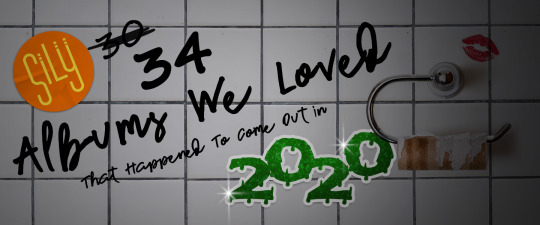
So much has already been said and written about this cursed past year, but a few good things came out of it, including the music. Album-wise, like many before it and many to come, it was an embarrassment of riches. But even with so much time on our hands to devour new tunes, it was often old favorites, songs of comfort or familiarity that garnered the heaviest rotation. For many artists, too, it was a year ripe for revisiting or reissues of old material, looking at existing songs with fresh and new perspectives. Simply put, with so much to listen to, new and old, the prospect of ranking a finite number of albums felt not only daunting, but frankly a bit stupid. Maybe we were late to the game, but 2020 taught us that music should and can be appreciated in multiple contexts, not limited to but including when it first came out and when it was heard again and again, even if years later. The records below--listed in alphabetical order--happened to be released in some form in 2020, whether never-before-heard or heard before but in a different format. And the only thing I know is that we’ll be listening to them in 2021 and beyond.

Autechre - SIGN & PLUS (Warp)
The legendary British electronic music duo surprise released SIGN a mere month and a half after its announcement and then PLUS 12 days later. The former was a beatific collection of soundscapes that belied the band’s usual harsh noise, while PLUS embraced that noise right back, drawing you in with the clattering chaotic burbles of opener “DekDre Scap B” and lurching forward. -Jordan Mainzer
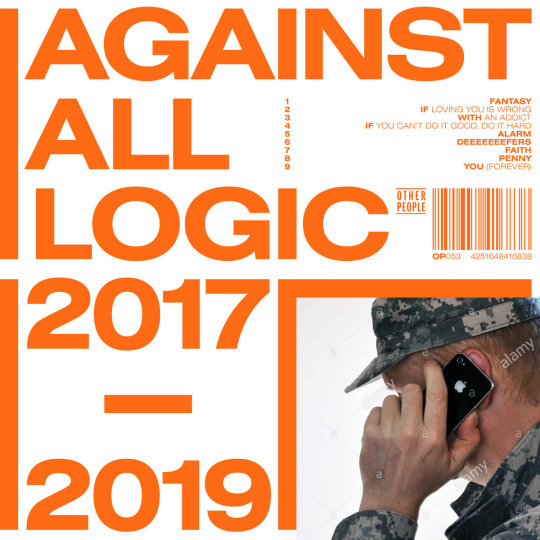
Against All Logic - 2017-2019 (Other People)
The perennially chill ambient house artist Nicolas Jaar had a busy 2020, as usual, releasing two albums under his name, Cenizas and Telas. But it was 2017-2019, the follow-up to the debut album from his Against All Logic moniker, that came first and throughout the year helped to illustrate Jaar’s penchant for combining inspired samples with club beats and tape hiss. Take the way the lovelorn vocals of “Fantasy” or soulful coos of “If Loving You Is Wrong” war skittering, scratchy percussion and cool arpeggios, respectively: Jaar is coming into his own as a masterful producer almost a decade after he released his first full-length. Oh, and bonus points for including none other than Lydia Lunch on a banger so blunt it would make Death Grips blush. - JM
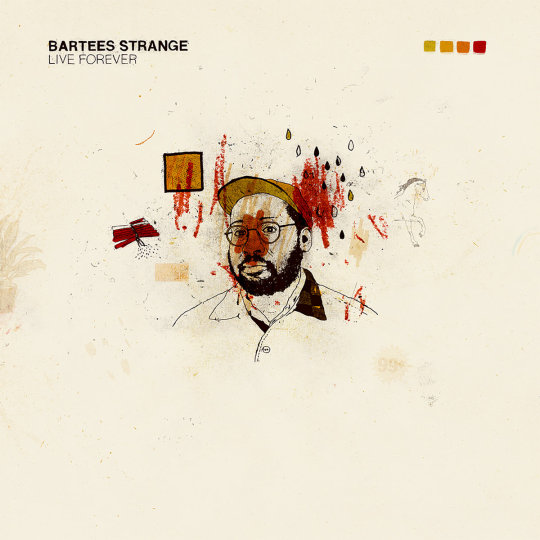
Bartees Strange - Live Forever (Memory Music)
Like many, my introduction to Bartees Strange was through Say Goodbye to Pretty Boy, his EP of The National covers. Creativity and shifting perspectives shine through each song’s reimaging, like flipping the coarse, almost manic “Mr. November” into something softer, more meditative. It felt like a mere peek into what was to come on Live Forever. Bartees Strange is a world-builder. Each track on his debut unfolds and welcomes you to a wildly engaging tableau, a fully constructed vision. “Jealousy” opens with soft vocals and birdsong. “In a Cab” is the slick soundtrack to racing through a cityscape in the rain, seeing the blurred lights of the high-rises above as you pass by. “Kelly Rowland” warps wistful pop song feelings. “Flagey God” takes you into a dark, pulsing club while only a few songs later, “Fallen For You” wraps you in echoed vocals and romantic, raw acoustic guitar.
It’s an accomplishment to craft an album of individual songs that stand strongly on their own but still feel cohesive. 2020 wasn’t all bad. It gave us Live Forever, a declaration of an artist’s arrival. - Lauren Lederman

Charli XCX - how i’m feeling now (Atlantic)
Back in the spring, many of us wondered who would put out something great in 2020’s quarantine. It was hard to imagine that the intensity of a global pandemic would really allow for artists to embrace creativity. That thought carries the same eye-roll inducing feeling of “We’ll get some great punk music out of a Trump presidency,” but of course, Charli XCX delivered. Through live workshops with fans and longstanding collaborators, she delivered songs to dance alone to in your bubble. Charli embraces the unknown of the moment but clutches onto what’s familiar. Under the glitch-pop veneer of the album, she digs into the anxieties of not just this moment of time but of the bigger questions we all confront: trajectories of relationships with friends, romantic partners, ourselves. Album standouts “forever” and “i finally understand” embrace that feeling of both looking for control and accepting the lack of it. Charli is a master at balancing this. - LL
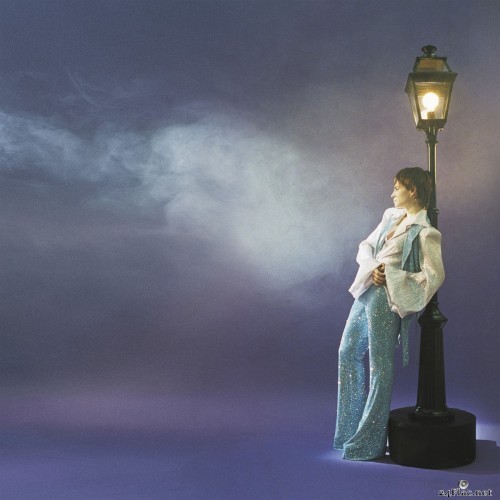
Christine and the Queens - La Vita Nuova (Because Music)
Named after a Latin text by Dante Alighieri about missing a woman who has died, Chris’ La Vita Nuova is not about mourning a death but instead about loneliness and isolation, post-relationship or otherwise. It doesn’t bang quite like her previous two albums, but it hits harder than ever.
Read our full review here.
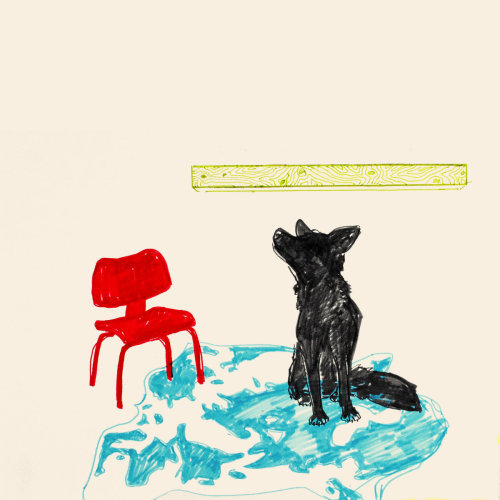
Dogleg - Melee (Triple Crown)
Released on March 13th, right as the COVID-19 pandemic hit, Melee was supposed to be supported by three cancelled tours–SXSW, an opening slot for Microwave, and an opening slot for Joyce Manor–and an appearance at this year’s cancelled Pitchfork Music Festival. Listening to the songs on the record, you can only imagine how they translate: the jerky momentum of “Bueno”, build-up of “Prom Hell”, gang vocals of “Fox”, clear-vocal anthem of “Wrist”, and odd groove of “Ender”.
Read “Buckle Up, Motherfucker”, our interview with Dogleg.
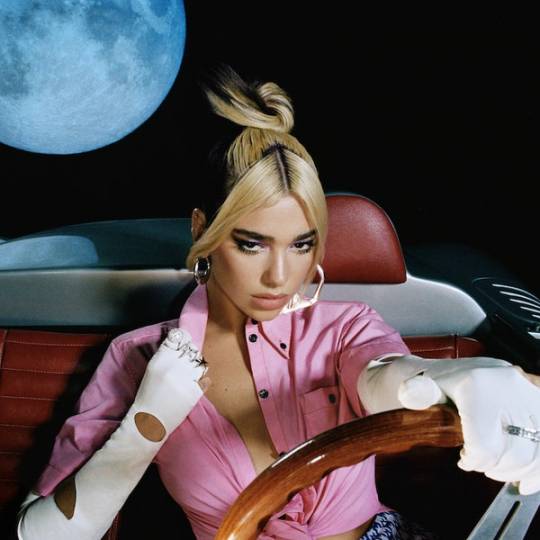
Dua Lipa - Future Nostalgia & Dua Lipa/The Blessed Madonna: Club Future Nostalgia (Warner)
Where Dua Lipa’s much-anticipated second album Future Nostalgia succeeded was in its disco anthems and retro, club-ready beats, so who better to bring out the best of the record than The Blessed Madonna? The turntablist masterfully curates a mix of heavy hitters of the charts and the underground that not only offers an essential complement to Future Nostalgia but transcends it. Sending the tracks out to various producers and singers for features and then adding her own samples on top, she invites you to peel back the layers, enter a YouTube rabbit hole of sample searching as much as bopping along.
Read our full review here.
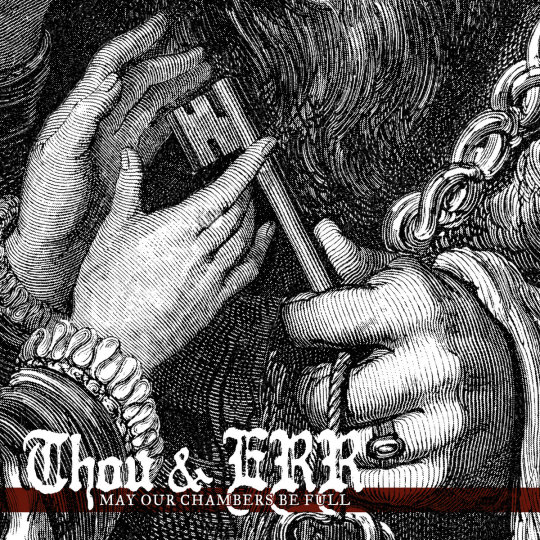
Emma Ruth Rundle & Thou - May Our Chambers Be Full (Sacred Bones)
Roadburn Festival has long been on my bucket list, and since the pandemic showed me how much live music can be taken away in a flash, when it’s safe again to travel and go to a festival, I may just pull the trigger and go--especially considering it’s the springboard for such fruitful and inspired collaborations as the one between Louisville singer-songwriter Emma Ruth Rundle and Baton Rouge sludge dwellers Thou. Rundle embraces the heavier opportunities on the follow-up to her incredible 2018 record On Dark Horses with the ever-flexible Thou backing her up vocally and instrumentally. Slow-burning opener “Killing Floor” offers a familiar introduction to fans of both--sort of what a Rundle/Thou song would sound like--before grunge chugger “Monolith” introduces huge, catchy riffs and “Out of Existence” a True Widow-esque dirge, newfound inspirations for both artists bringing the best out of each other. - JM

Fiona Apple - Fetch the Bolt Cutters (Epic)
What makes Fetch the Bolt Cutters stand out among Apple’s catalog and music in general is the clarity with which Apple seethes at those who have wronged her, whether ex-boyfriends or patriarchal oppressors, and looks to her relationships with other women for peace of mind.
Read our full review here.
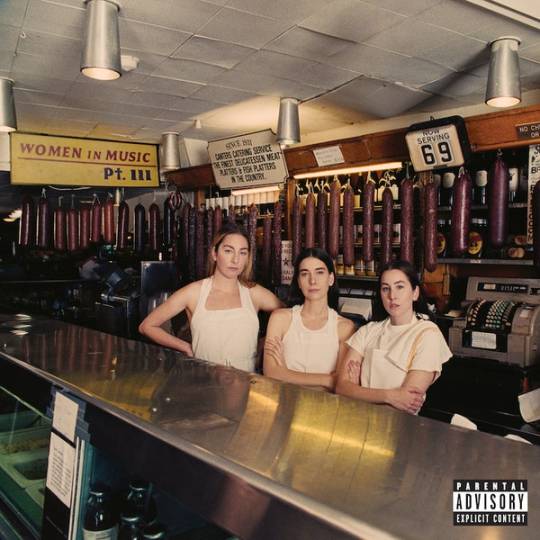
HAIM - Women in Music Pt. III (Columbia)
For HAIM, the title Women in Music Pt. III is suggestive that, more than their previous two records, their third centers around the experiences of being an all-female band in a historically white cis male-dominated scene, at least one that wouldn’t call catchy riffs written by a man “simple” or call attention to the faces a man makes while playing. What it doesn’t let on to is how deeply personal the record is, how, by unabashedly embracing genres and styles of music that they love, HAIM have made far and away their best album. Co-produced by the usual suspects, Danielle Haim, Ariel Rechtshaid, and ex-Vampire Weekender Rostam Batmanglij, it’s instrumentally and aesthetically dynamic and diverse, consistently earnest without devolving into cheese.
Read our full review here.
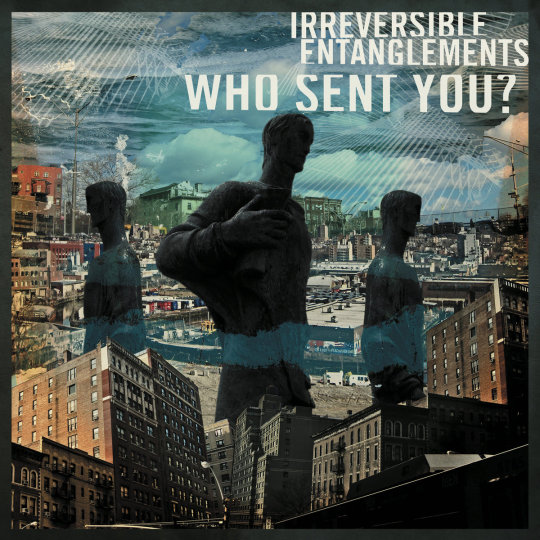
Irreversible Entanglements - Who Sent You? (International Anthem)
I’ve been captivated by Irreversible Entanglements ever since I first saw them at Pitchfork Music Festival 2018. The radical poetry of Camae Ayewa (aka Moor Mother) is the perfect front for a ramshackle mix of Luke Stewart’s spidery bass, Tcheser Holmes’ weighty drums, and a horn section that concocts tones that range from hopeful to desperate. At their best, Who Sent You? is a shining example of celebratory Afrofuturism and metaphysics that makes the urgency of Ayewa’s more concrete and political words all the more necessary. “No Más”, composed by Panamanian-born trumpeter Aquiles Navarro, is a declaration against imperialist oppression, while the stunning title track flips the switch like a Kara Walker painting, as Ayewa’s the one interrogating the police officer terrorizing her community. “Who sent you?” she repeats, never spiraling, grabbing a hold of the power and never letting go. - JM
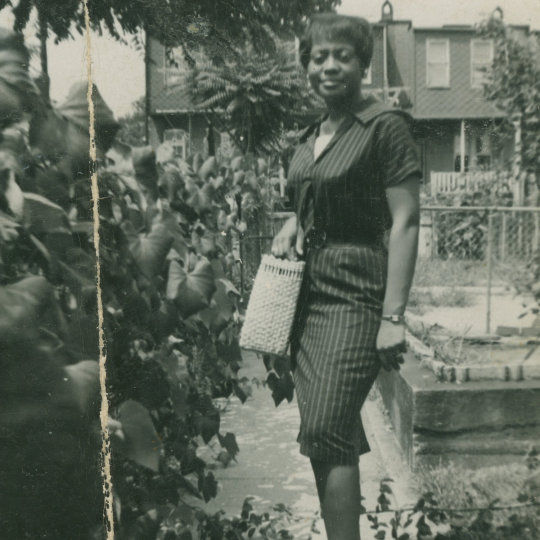
Jeff Parker - Suite for Max Brown (International Anthem/Nonesuch)
It’s Jeff Parker’s mom’s turn. After 2016′s The New Breed ended up being a tribute to the guitarist’s father, who passed away during the making of it, Parker decided to pay tribute to Maxine while she was still alive. Suite for Max Brown (Brown is his mother’s maiden name; Max is what people call her) is a genre-bending collection of tracks inspired by Parker’s DJing, juxtapositions of sequenced beats with improvisation that certainly sound like the brainchild of one individual. Indeed, Parker plays the majority of the instruments on it and engineered most of it at home or during his 2018 Headlands Center residency in Sausalito, CA; though all of the players and the vocalist (Jeff’s daughter Ruby Parker) on The New Breed show up, plus a couple trumpeters (piccolo player Rob Mazurek and Nate Walcott of Bright Eyes) and cellist Katinka Kleijn, Suite for Max Brown is a distinctly Jeff Parker record.
Read our preview of Jeff Parker & The New Breed’s set at Dorian’s last year.
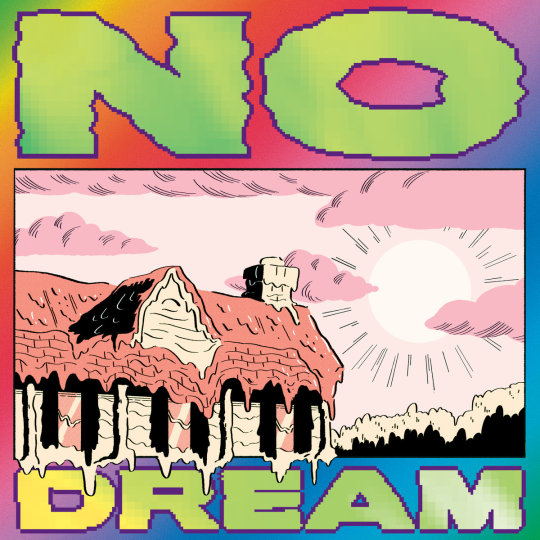
Jeff Rosenstock - NO DREAM (Polyvinyl)
Jeff Rosenstock throws us right into the spinning, manic energy of NO DREAM, his latest release from a seemingly endless well of music that never lacks urgency. It’s a reminder that though it’s been a strange year, the issues Rosenstock tackles here aren’t new. There’s no interest in making you feel comfortable here. On the album’s title track, Rosenstock sings, lulling you into a false sense of security, “They were separating families carelessly / Under the guise of protecting you and me.” But reality sets in, and the hazy guitars spin out as he spits, “It’s not a dream!” and, “Fuck violence!”
My image of Jeff Rosenstock in the year 2020 is masked up with “Black Lives Matter” scrawled across the fabric of his mask in Sharpie, performing album highlight “Scram!” on Late Night with Seth Meyers as high energy as ever. It felt like watching someone send out a beacon, both a distress signal and a call to arms. - LL
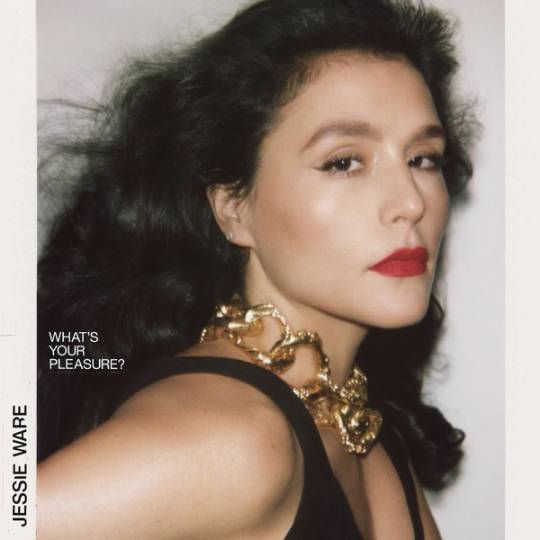
Jessie Ware - What’s Your Pleasure? (PMR/Friends Keep Secrets/Interscope)
I am not someone who goes to clubs. I don’t “go out dancing,” preferring to let loose in the privacy of my own home or a trusted friend’s house party. But Jessie Ware’s What’s Your Pleasure? makes me think I could embrace a night out like that, once the world opens up again, of course. The album is filled with syncopated disco beats that feel fresh and classic all at once. The abundant horns and strings on “Step Into My Life” are decadent, like light bouncing off sequins in a dark room. Ware’s voice is slinky and velvety one moment, windswept like her album cover the next. It’s songs like “Save a Kiss” that embrace both, allowing her to show off her range. - LL
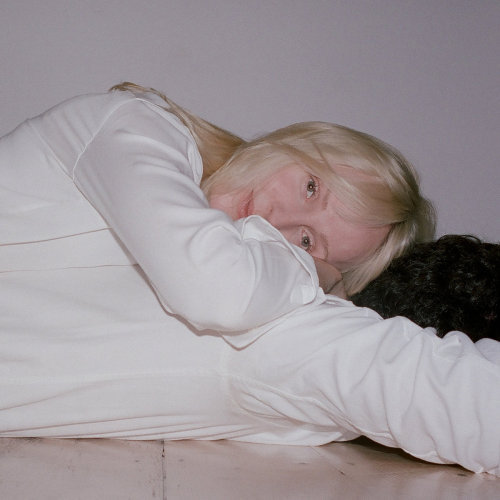
Laura Marling - Song for Our Daughter (Partisan)
With sparse production, mostly from her but with additions from Ethan Johns and Dom Monks, Marling foregoes the comparative maximalism of the Blake Mills-produced Semper Femina, her last proper full-length, and 2018′s LUMP collaboration. The songs aren’t simple, but they’re succinct, and every element, from Marling’s finger-picked guitars, the occasional slide guitar, and that unmistakably calm voice, sometimes alone and sometimes layered, fits. It’s her most universal set of songs yet, centering around the times when we’re apart from one another but reflecting on when we were together and when we might be together again, with no guarantees.
Read the rest of our review here.
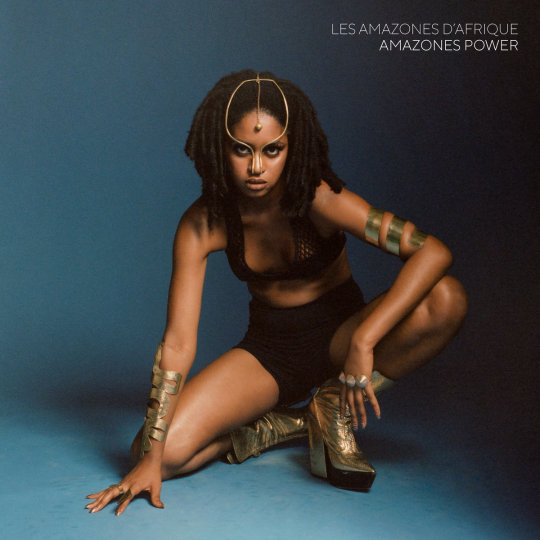
Les Amazones d’Afrique - Amazones Power (Real World Records)
The groovy pan-African collective expands upon their debut Republique Amazone and then some with Amazones Power, a tour-de-force statement of female empowerment in the face of oppression against women throughout the African diaspora. Indeed, the album is more than just songs boldly decrying FGM, though those demands ring heavily. Instead, the group goes further, delving into gender power structures in marriage on “Queens” and selectively finding strength in tradition on “Dreams”. And this time, they include men to stand alongside with them. “Together we must stand / Together we must end this,” sings Guinean musician/dancer/artist Niariu on opener “Heavy” in solidarity with features Douranne (Boy) Fall and Magueye Diouk (Jon Grace) of Paris band Nyoko Bokbae. But perhaps it’s her kiss-off on “Smile” that hits hardest: “I shut up for no one.” - JM

Lianne La Havas - Lianne La Havas (Nonesuch)
The British singer-songwriter’s much anticipated follow-up to 2015′s Blood was better than I could have ever imagined. A song cycle about life cycles--of nature, of lives, of a relationship--inspired by an actual breakup, Lianne La Havas is a contemporary neo soul masterpiece. Overview opener “Bittersweet” is an instant earworm, La Havas’ coo-turned-belt filling the space between classic and increasingly emotive slabs of piano and guitar. Funky, lovestruck strut “Read My Mind” is the soundtrack for the unbridled confidence of finding new love. Yes, the doubts begin to sow on the fingerpicked melancholy of “Green Papaya” and “Can’t Fight”, and where the album goes from a simple narrative perspective may be predictable: They break up, they don’t get back together, La Havas enjoys her independence. But the depth of the arrangements and assuredness of La Havas’ singing is a product of an artist starting to really show us what she can do. And how many people can pull off a Radiohead cover like that? - JM
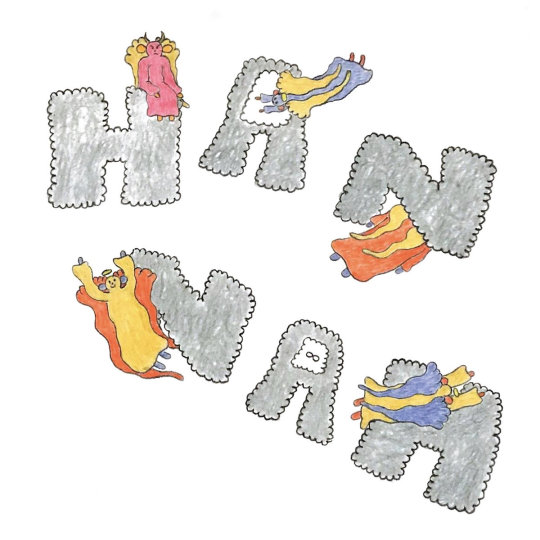
Lomelda - Hannah (Double Double Whammy)
What does it mean to title an album after yourself? Lomelda’s latest album is centered around discovering more about yourself while not always having the answers. Despite the lyrical content, the album is self-assured. Hannah Read’s voice feels as steady as ever as it navigates these twisting questions, like the way the world can shift after a kiss. She finds power in softness and reflection throughout the album, like when she explores the mantra-like words of “Wonder” or through a reminder to do no harm in “Hannah Sun”. In a year that allowed for perhaps more reflection than usual, Hannah makes space for the questions that arise out of figuring yourself out, of making sense of the messiness of it all, wrapped in warm guitar, balanced vocals, and steady drums. - LL
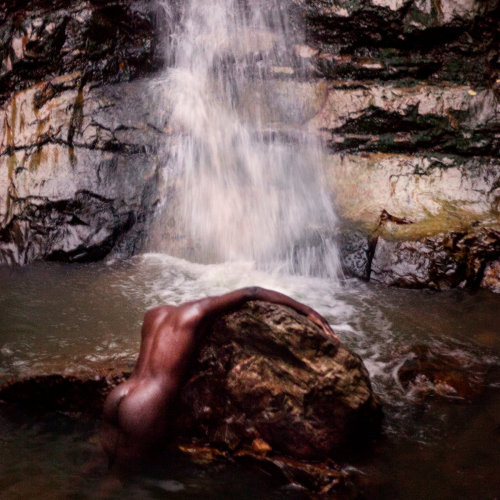
Moses Sumney - Grae (Jagjaguwar)
“Am I vital / If my heart is idle? / Am I doomed?” Moses Sumney famously sang on his stunning 2017 debut Aromanticism, an album that saw him developing his acceptance of being alone. grae, his two-part 2nd full-length, and his first since officially moving from L.A. to the Appalachian Mountains of Asheville, North Carolina, doubles down on themes of heartbreak, but instead of being sure in his seclusion, he embraces the unknown. The album teeters between interludes of platitudes about isolation and ruminations on failed human connection, and maximally arranged clutches of uncertainty. “When my mind’s clouded and filled with doubt / That’s when I feel the most alive,” Sumney coos over horns and piano on slinky soul song “Cut Me”; it’s an effective mantra for the album.
Read the rest of our review here.
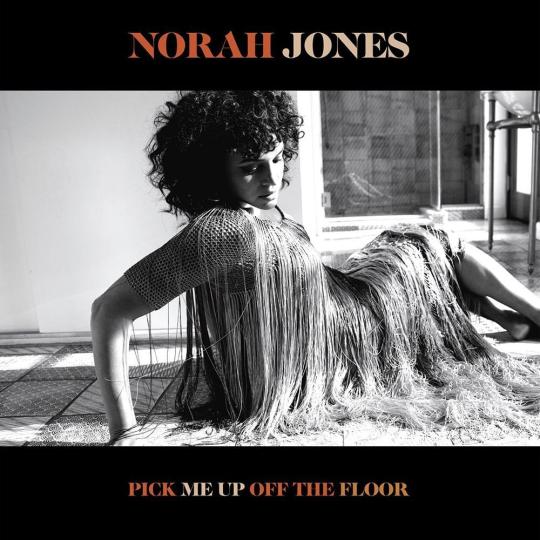
Norah Jones - Pick Me Up Off The Floor (Blue Note)
At the time we previewed Norah Jones’ 7th studio album, she had only released a few tracks from it. Turns out the rest was just as powerful. From the blues stomp of “Flame Twin” to the rolling piano stylings of “Hurts to Be Alone”, Pick Me Up Off The Floor is an album full of jazzy orchestrations and soul and gospel-indebted arrangements, Jones’ silky, yearning voice tying together the simple, yet lush and deep instrumentation. And that other Tweedy feature, that closes the album? It’s a heartbreaking portrait of loneliness, one of many on a record that still manages to celebrate being alive all the while. - JM
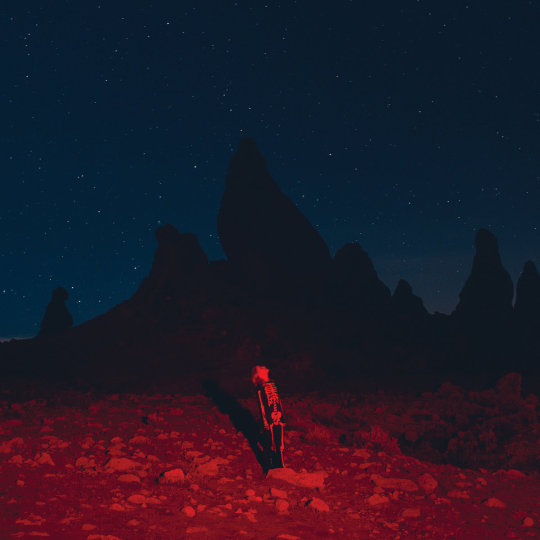
Phoebe Bridgers - Punisher (Dead Oceans)
Phoebe Bridgers is a master of details. Her lyrics shine when they get specific. They range from the mundane to morbid: A superfan’s ghost-like wandering under a drugstore’s fluorescent lights, a skinhead likely buried under a blooming garden, reckoning with the you in “Moon Song”’s lines, “You are sick, and you’re married / And you might be dying.” Bridgers has always been able to set a scene meticulously, and Punisher arrived with 11 songs that expanded that skill, both lyrically and musically, with her dark humor intact and a fuller sound that includes her boygenuis collaborators’ harmonies. - LL
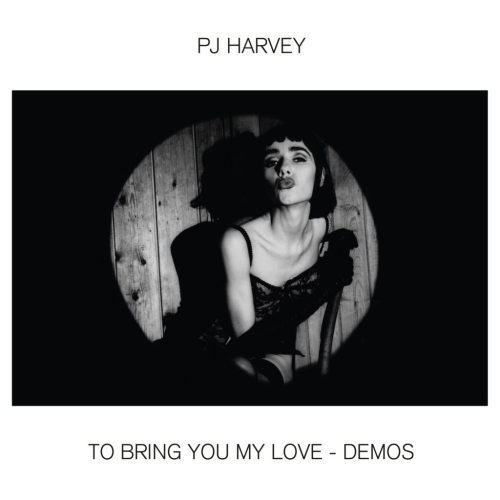
PJ Harvey - To Bring You My Love: The Demos & Dry - The Demos (Island)
Yes, revisiting Dry’s demos as a separate entity is still worthwhile. Harvey’s powerhouse vocal performance carries the acoustic strummed “Oh My Lover”, while the comparatively minimal arrangement of “Victory” highlights bluesy riffing, call-and-response harmonies, and layered guitar and vocals. The singles, the slinky and sharp “Dress” and propulsive anthem “Sheela-Na-Gig”, hold up to their ultimate studio versions, too. But it’s the To Bring You My Love material that provides novelty because it’s never been released and more so because it encompasses the greatest aesthetic contrast from the album. From the warbling hues and guitar lines of the title track to the tremolo haze of “Teclo” to the crisp snares of “Working With The Man”, the demos show a continuity and level of cohesiveness with the diversity of Dry and Rid of Me not shown on the studio version of Harvey’s more accessible commercial breakout. (Predictably, the album’s most well-known song, “Down by the Water”, is the closest to its eventual version.) “Long Snake Moan” is simultaneously more spacious and more noisy, its garage blues a total contrast to the lurking “I Think I’m A Mother” and swaying shanty “Send His Love To Me”. And “The Dancer” fully embraces its flamenco influences, hand claps and all.

Porridge Radio - Every Bad (Secretly Canadian)
Is there a better opening line than “I’m bored to death, let’s argue”? That kind of duality is found across all of Every Bad as it grapples with the frustrations and anxiety of trying to figure it all out, whatever that might mean for you. “Maybe I was born confused, but I’m not,” vocalist Dana Margolin repeats throughout the opening track, roping in listeners with the dizzying feeling of trying to make sense of yourself. The band’s guitar and synth sound coupled with Margolin’s howl makes for a dance party filled with dread, rendering Margolin’s already strong, repetitive lyrics even more spiraling. And yet, by the time we get to “Lilacs”, a glimmer of something else shines through as the music gets more manic and Margolin’s voice begins to soar: “I don’t want to get bitter / I want us to get better / I want us to be kinder / To ourselves and to each other.” - LL
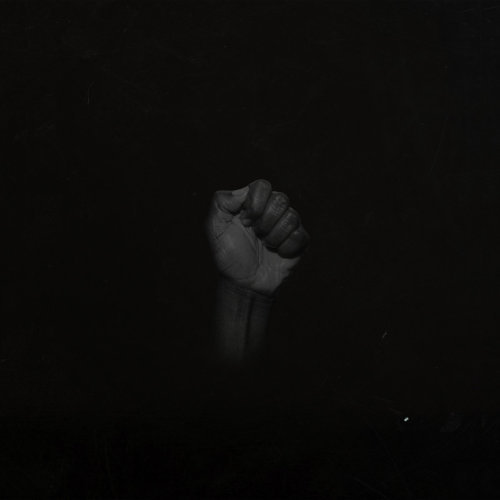
Sault - Untitled (Rise) & Untitled (Black Is) (Forever Living Originals)
Yes, Black Is still pulls plenty of devastating punches. “Eternal Life”, a segue from the gospel boost of “US”, juxtaposes a deliberate drum beat with zooming synths, both ascending like a chorus of angels, as they sing, “I see sadness in your eye / ‘Cause I know you don’t wanna die,” presenting the oppression of Black life at the hands of white supremacy in inarguable terms. Ultimately, though, it’s the anthemic nature of the songs, resistant of platitudes, that shines through. “Nobody cared / This generation cares,” says Laurette Josiah on “This Generation”. Whether she’s talking about young people in general or the latest generation of young Black leaders, the sentiment is reflected on songs like “Black”, wherein over dynamic, sinewy instrumentation, the singers alternate between encouragement, support, and love of the self and others.
Read our full review here.
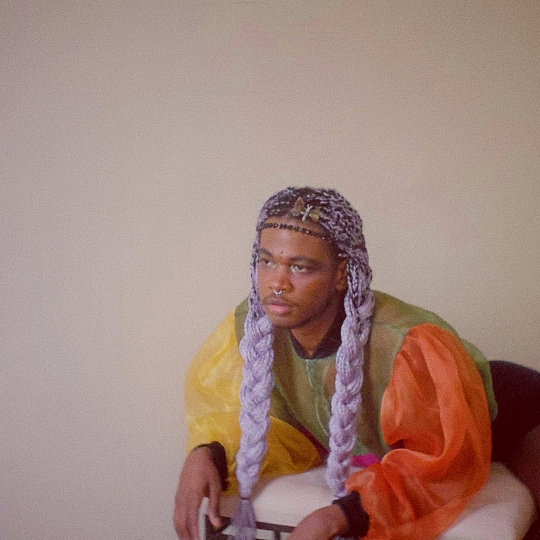
Shamir - Shamir (self-released)
Shamir’s voice is a bright beacon in a sea of conventional singers. Shamir captures the effervescence of pop music and weaves it together with elements of country, alt rock, and diary confessional lyrics all supported by the emotion and range of his vocals. There’s something for everyone across the album’s 11 shimmering tracks. Lead single and opener “On My Own” feels like a declaration of self and self-sufficiency, an anthem of a breakup song. The almost pop-punk bounce of “Pretty When I’m Sad”, paired perfectly with lines like the angst-ridden, “Let’s fuck around inside each other’s heads,” feels impossible to not bop along to. The twang of “Other Side” would put a country crooner to shame. That’s the power of Shamir. His voice has the ability to smoothly convey joy, resilience, and humor. He uses elements of several genres, not just the dance-pop of his debut, to build a unique album that gives listeners so much to sift through and, of course, dance to. - LL
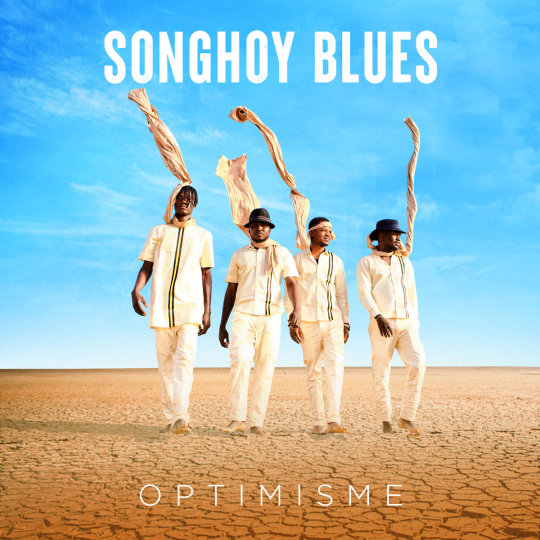
Songhoy Blues - Optimisme (Fat Possum)
If Songhoy Blues’ second album Resistance lacked “the grit of its predecessor,” it’s clear from the hard rock stomp of the opening track of Malian band’s third album Optimisme that they rediscovered their mojo. More importantly, they couple this maximal brashness with tributes to those who make their world a better place: fighters for freedom, women, the young. It’s perhaps the first Songhoy Blues record to truly combine the celebratory nature of their desert blues with a balanced mixture of idealism and vigor. - JM
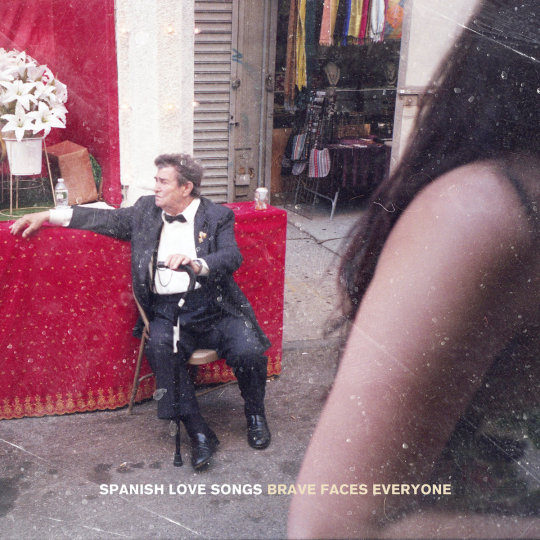
Spanish Love Songs - Brave Faces Everyone (Pure Noise)
How can you find hope in hopelessness, or optimism when every news story points to cruelty? Is it naïve to keep searching for light in the dark? I don’t think so, and I don’t think Spanish Love Songs does, either. I’d like to think we both believe that’s not naivety, but power. It’s the embers you need to really ignite a flame. After all, this is the band with a song titled “Optimism (As a Radical Life Choice)”. It’s a band whose crunching guitars and earnestness insist that despite death and depression and addiction, the instinct to survive shines brightly above all. That relentless hope resurfaces across Brave Faces Everyone’s 10 tracks even as it works through the bleakness of everyday life. - LL
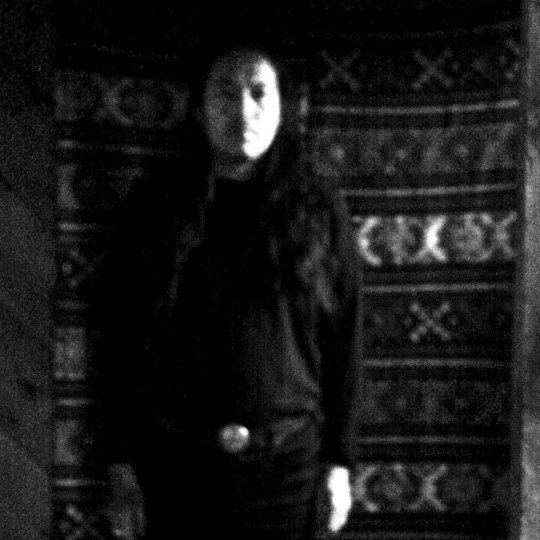
Tashi Dorji - Stateless (Drag City)
The magnum opus from the Asheville-based picker is a group of evocatively titled, disorderly songs about the desolate hellscape of America for outsiders and immigrants. Enigmatic in its nature, not exactly narrative, Stateless combines Dorji’s urgent strumming with moody motifs, captured beautifully in a studio setting for maximum emotional wallop. - JM
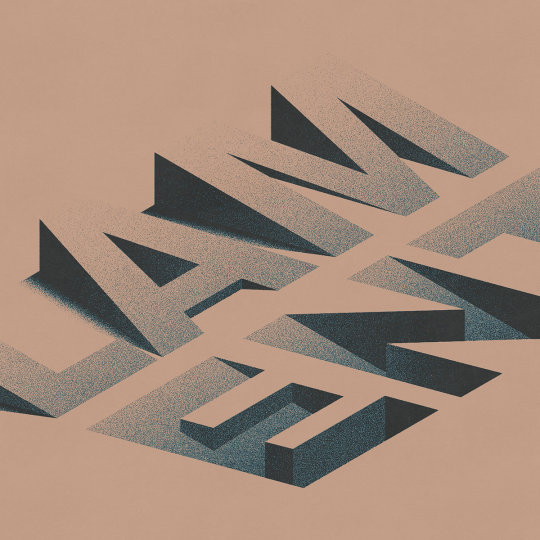
Touche Amore - Lament (Epitaph)
Is this what an almost uplifting Touche Amore album sounds like? It’s cathartic in a newer way for the band, especially after the beautifully rendered grief of Stage Four. Lament loses none of the band’s aggression or urgency. “Come Heroine” thrusts listeners into that urgency and introduces a moment of warmth, Jeremy Bolm’s vocals still rasping and insistent: “You brought me in / You took to me / And reversed the atrophy.” The bounciness of “Reminders” may seem close to optimism, but a sharper look at the lyrics uncovers more than blindly looking to the things that bring joy. “I’ll Be Your Host” is reflective, a few years removed from Touche Amore’s previous album and the immediacy of loss, self-aware and growing, but still raw. The album closer, “A Forecast”, takes a turn, a lone voice and piano acting as a confessional before giving way to thrashing guitars and the realization that growth and reckoning with trauma doesn’t mean minimizing it. It means learning to keep moving forward and to stop for help when you may need it. - LL

Waxahatchee - Saint Cloud (Merge)
The best album yet from Katie Crutchfield is inspired by positive personal change (getting sober, dealing with codependency issues, her blossoming love with singer-songwriter Kevin Morby) and reflections on family and friends. Named after the suburb of Orlando where her father’s from, Saint Cloud is a genre-hopping collection of stories and feelings that doesn’t necessarily follow any semblance of narrative. On opener “Oxbow” and country-tinged ditty “Can’t Do Much”, Crutchfield’s increasingly aware of the need to pick your side and your battles, whether in the relationship between two people or between the allure of the bottle and the next-day hangover. Some of the best songs on the album see her finding commonalities with others as a means towards self-love. Gentle strummer “The Eye” refers to her natural creative relationships with Morby and her sister Allison. “War” she wrote for herself and best friend, who is also sober, the title a metaphor for one’s fight to remain substance-free. “Witches” is an ode to her best friends, including Allison and Snail Mail’s Lindsey Jordan, all equally frustrated by the toxic nature of the music industry and the world at large, ultimately lifting each other up because they simply have each other.
Read our full review here.
#autechre#against all logic#bartees strange#charli xcx#christine and the queens#dogleg#dua lipa#emma ruth rundle & thou#fiona apple#haim#irreversible entanglements#jeff parker#jeff rosenstock#jessie ware#laura marling#les amazones d'afrique#lianne la havas#lomelda#moses sumney#norah jones#phoebe bridgers#pj harvey#porridge radio#sault#shamir#songhoy blues#spanish love songs#tashi dorji#touche amore#waxahatchee
66 notes
·
View notes
Text
People who fight for oppressed people's rights are -- by definition -- people for whom fighting is at least possible. And the people who are the most consistently outspoken about fighting for those rights are -- in general -- people for whom that fight is energizing and fulfilling.
And it is VERY GOOD that we have people like that, because those fights are long and hard and need people who can repeat them, day after day, year after year. People who can do that are amazing, and deserve all of our support.
But the people who are most consistently vocal in a community become its leaders and its role models, which has it has this unintentional side effect that the Marginalized Community is driven by people who are driven to fight for themselves and others, and therefore part of the Marginalized Identity becomes the willingness/ability to fight the Marginalized Fight. Not because anyone means to be exclusionist or to silence other perspectives, but simply because of the way group dynamics work, plus the human tendency to overgeneralize our experiences. They're not telling you to fight because they want to shame you or make you feel bad -- they're telling you that because it genuinely worked for them. When they started fighting back, they felt better, stronger, less afraid, more useful, like they had a purpose in life and were really contributing to the world. It made their lives better, and they're trying to pass that on to you.
But it's OK if that's not right for you. People are built different. A tribe needs its warriors, but it can't and shouldn't consist entirely of warriors. The goal and purpose of the Marginalized Fight is to make life better for marginalized people. If you are a marginalized person, and you make your life better, then you are contributing to that goal.
There are people who don't want disabled people to hold a job or act like they can do something as well as abled people. If you and your disability find a good solid job and just pursue a nice, steady career with inflation-based pay raises each year, that is fighting the fight.
There are people who don't want LGB people to have loving sexual/romantic relationships. If you are a bi person who just does your job and then goes home every night to hang out with your spouse; if you are an ace person who just has a nice, comfortable marriage with no sex -- that is doing your part for the rebellion.
There are people who don't want trans/intersex/nb people to feel comfortable in their bodies. If you go get a massage and enjoy how it feels, that is standing firm against the oppressors.
There are people who don't want POC to have pleasure in life. If you go home each evening and chill and watch Hulu and enjoy your life, then you have already defeated part of the enemy's strategy.
Obviously don't be stupid, or make yourself unsafe, or make reckless decisions in the name of comfort. Obviously please stand up for yourself and others to the extent you are capable of doing so. Obviously keep writing to congress and attending rallies or whatever parts of The Fight you are up to.
But don't feel like your worth or value is tied to how much you are doing to help Marginalized People Like You. You are a marginalized people like you, and you deserve help. The idea that "no marginalized person should have any happiness until all marginalization is gone" is a motto much more useful to our oppressors than it is to us.
#bigotry cw#homophobia cw#queerphobia cw#ableism cw#racism cw#spoonie life#raina rants a bit#transphobia cw
47 notes
·
View notes
Note
Fandom racism anon here and yeah absolutely (I didn't realise I had anon on lol)
Because while LOTR has problems within its themes (ie the orcs can be seen as to be coded as people of colour, especially since they ride elephants) the explicit message of the book is evil bad
Because the only people who work for sauron are evil. There are no morally grey people, they aren't misguided or tricked they just are evil and want to take over the world
And yeah I totally agree that this is more of a literal take on like empirical war (is that the word) and that makes total sense considering Tolkiens history
Whereas I would say that the allegories in shaowhunters is way more based on racial conflict within a country itself especially slavery, I can't remember if this is show Canon but is it that they have the warlock tropheys? I remember that in the books magnus talks about shadowhunters hanging warlock marks on their walls? (sorry to bring the books up)
Idk it's very hollow to me, unlike with LOTR though it's a different allegory it's totally irritating to show many of these supremecists as morally misled. LOTR says bad guys are bad guys, shadowhunters says well yeah they did follow a guy which thinks that downworlders are subhuman and should be eradicated but they just made a mistake
I want to compare this to tfatws which while it isn't really fantasy I just feel like it shows how the priorities of the writer can impact the message of the show so powerfully (I know u aren't up to date so I'm gonna be pretty vague)
There's a scene in tfatws where the new white perfect captain America does something bad and doesn't pay for the consequences - done to comment on white privelege and how America condones white supremacy and how Sam is in comparison to that
Mayrse and Robert revealed to be part of the circle! And paid no consequences Shock horror my parents were the bad guys (even rho they were either implicitly or explicitly extremely racist the entire time) also I haven't finished the seires but do the lightwoods ever try to get their parents to face the consequences?)
Only one actual really critiques the situation and the reality behind it whereas the other one is just to centre the white characters once again and present them in a further sympathetic light
AND ANOTHER THING! I was mostly talking about show Canon here and I'm sorry to bring up the books but I literally can't believe I hadn't picked up in this before.
So like downworlders = people of colour, Simon is a vampire so is coded as a person of colour. However in the books in the last one he stops being a vampire and becomes a shadowhunters instead, coincidentally that's also when he starts dating Izzy HOW IS THIS ABLE TO HAPPEN!!????
I mean I know cassandra clare is lazy right? The original seires is by far the worst of all her writings but come ON!!!!! By the allegory has he become the white man!????? These books made no fuckin sense when I read them at 15 and they make no sense now I'm digressing anyways
I don't know man I wrote this ask because I was trying to find some fantasy book recommendations on booktube and SO MANY of them were about slavery or general ly extrême préjudice with à White protagonist to save this 'poor souls'.
Also I was watching guardians of the galexy the other day and realised nearly every movie set in space is just bigger stakes imperialism - planets instead of countries. Literally star wars, star trek, guardians of the galexy 2, avengers infinity war - all are facing genocidal imperialistic villains without actually paying much, if any attention to those effected
Just writing this ask made me exhausted I'm so tired of lazy writing and exploiting other people's struggle. I'm white and I'm trying to be more critical about the movies, shows and books I watch and read but let me know if I said something off here❤️❤️ you gotta get up to date with tfatws man, Sambucky nation is THRIVING!!!!
i'm not sure i agree that the whole "the evil people are evil" thing is a good thing, because i feel like more often than not making the bad characters just like... unidimensionally evil just means that the reader will be like "lol i could NEVER be that guy" and when it comes to racism that is a dangerous road to take because white people already believe that racism is something that Only The Most Evil People, Ergo, Not Me, Can Do, which makes discussions of stuff like subconscious racial bias and active antiracist work become more difficult because people don't believe they CAN be racist unless they're like, Lord Voldemort
which is not to say that racism should be treated as morally ambiguous, just that the workings of racism should be represented as something that is not done only by the Most Hardcore And Evil, but rather as a part of a system of oppression that affects the way everyone sees the world and interacts with it and lives in it
yes the warlock trophies are mentioned in the show, albeit very quickly (there is a circle member who tells magnus that his cat eyes will make "a nice addition to his collection" and then it's never mentioned again because this is sh and we love using racism for shock value but then not actually treating it as a serious plot point or something that affects oppressed ppl). and you are absolutely right, shadowhunters (and hp, and most fantasy books) has genocide as its core conflict and treats it, like you said, in a very hollow way, treating racism as both not a big deal and not something that is part of a system of oppression, but really the actions of a few Very Bad People. it's almost impressive how they manage to do both at the same time tbh
i think you hit the nail right on the head with this comment, actually. for most of these works, racism is SHOCK VALUE. it's just like "lol isn't it bad that this bad guy wants to kill a gazillion people just because they are muggles? now that is fucked up" but it's not actually an issue. in fact, when this guy is defeated, the whole problem is over! racism is not something that is embedded into that world, it's not a systemic issue, it's not even actually part of what drives the plot. the things that led to this person not only existing but rising to power and gathering enough followers to be a real threat to the whole world are never mentioned. it's like racists are born out of thin air, which is dangerously close to implying that racism is just a natural part of life, tbh
anyway my point is, it is never supposed to be questioned, it is never part of a deeper plot or story, its implications are barely addressed except for a few fleeting comments them and there; so, it's not a critique, it's shock value, even though it is frequently disguised as a critique (which is always empty and shallow anyway. like what is the REAL critique in works like hp or sh/tsc other than "genocide is bad"? wow such a groundbreaking take evelyn)
about simon and the book thing: i actually knew about this and the weird thing about this is that, like... simon is jewish, and he's implied to be ashkenazi (calls his grandma bubbe which is yiddish, which is a language spoken by the ashkenazi ppl), and it seems like cc is always toeing the line between him being accepted by shadowhunters and then not accepted by them, which sounds a lot like antisemitic tropes and history of swinging between (ashkenazi) jewish ppl being seen as the model minority myth and thus used as an example by white christians, and being hated and persecuted. i'm not super qualified to talk about this since i'm not jewish and i'm still learning about/unlearning antisemitism and its tropes, and i don't really have a fully formed thought on that, tbh; it just reminds me of the whole "model minority" swinging, where one second simon is part of the majority, the other he's not, but always he is supposed to give up a part of himself and his identity in other to be "assimilated" by shadowhunter culture. this article (link) covers a book on jewish people and assimilationism into USan culture, this article (link) covers british jews' relationship with being considered an ethnic group, and this article (link) talks a bit about the model minority myth from the perspective of an asian jewish woman
it just really calls to my attention that cc chose to make her ashkenazi jewish character start off as a downworlder and then become a shadowhunter. i don't think she made that decision as a conscious nod to this history, because it would require being informed on antisemitism lol but it's incredible how you can always see bigoted stereotypes shining through her narrative choices completely by accident. it just really shows how ingrained it is in our collective minds and culture
and anyway, making a character go from the oppressed group to just suddenly become the oppressor is just. wtf. not how oppression works, but most of all, really disrespectful, especially because she clearly treats it as an "upgrade"/"glowup" that earns him the Love Of His Life
also, out of curiosity, are you french? it seems like your autocorrect changed a few words and i'm pretty sure extrême and préjudice are the french versions of these words, and since u said ur white, that's where my money would be lol
9 notes
·
View notes
Text
BE RIGHT BACK/ BAI BIN PODCAST - EPISODE 1: The Move or Ban Move
INTRO: LIVE
>>WIRI SOUND<<
Hi! Welcome to Bai Bin/ Be Right Back Podcast!
I’m Gyonne… And I’m Eva
G & E: and we know each other from way back when we were in our early threes, up to the thirteens and now in our almost thirties.
G: We both have been living in the Netherlands for almost ten years and we both have been missing the conversation of what it means to be Caribbean in the Netherlands. We too deserve representation within the community we live in and we have a responsibility to also give space for those who have this need to feel represented. These conversations are a good start at that, but certainly not the last step. For us, it’s the Bai Bin culture that struck a chord. As Caribbean migrants we have a strong legacy of coming and going, making a home everywhere. Seeking familiarity within the community we constantly place ourselves in. But still, we find ourselves coming back to our roots, to our home, and realize that coming from the Caribbean is a meaning that is an ongoing process. We tried to find the closest translation to Bai Bin and we agreed that Be Right Back was the best choice. In this podcast we go on a journey with different guests to find out what this means for them while also looking at the different experiences within migrating back and forth from this area.
E: It’s a podcast on the culture of being from, and going back and forth to the Caribbean.
Both Gyonne and I are from Aruba, both our experiences are with coming and going, Back and Forth and it has given us the privilege to not only have a home in Aruba but also being able to build a home in The Netherlands. However our experiences with the whole situation is very complex and so we find it important and essential to learn from our other Caribbean islands what their experience was.
G: In this episode we have that conversation with Jorge Coffie and Caitlin Schaap and we talk about The Move or Ban Move.
G: So, what does it mean for all of us to be from the Caribbean?
>>WIRI SOUND<<
VOICE OVER: Eva
→ The root of the word Caribbean
The word Caribbean is one that we will be hearing a lot during our conversations. For many of us it may be the only word to describe our connectedness with that part of the world. Maybe born on one/ a specific island, but having roots in neighbouring islands. The notion of Home and belonging are complex and heavily colonised or colonially rooted as well. Identifying as being Caribbean is therefore something that can remind you of something beautiful, but also leaves a lot of questions behind. For the inhabitants of this area it often means being descendants of the oppressors and the oppressed, it means living in countries that live by the systems of the former colonizers and current dominant powers (often residing in Europe or The United States) and having little to no knowledge on indigenous practices, culture or practices/cultures that aren’t wholly European. In this globalised world the line is thin and the search is ongoing. Speaking of indigenous remembrance, the word Caribbean is also colonially rooted, first used by the notorious Christopher Columbus, to identify the Kalinia people: the aborigines of the Caribbean. These native people were for the most part brutally killed by force or European sickness and or transported to neighbouring islands. The indigenous people still live in relatively smaller populations within the contemporary Caribbean.
>>WIRI SOUND<<
G: Hi everyone, thank you for listening to this first episode of Be Right Back/ Bai Bin Podcast. Like we already mentioned in the intro I am Gyonne, and my co-host Eva is also joining us.
Today we are talking with our guests Jorge Coffie and Caitlin Schaap on our first episode: The Move or Ban Move.
[editing issues]
G: and thus being able to go to university. So the whole context of me as a person or as a woman as well, I felt was tied to being smart academically, so to speak and my surroundings seeing the value in that, which is something positive obviously. But also seeing and talking about how the diploma from the Netherlands was the only valuable thing or the next valuable thing in my life to attain. So it was kind of this preconceived notion that no one talked about that got me to the Netherlands to study. I see it as an unconscious day to day coloniality that we project upon others, our students or our kids, that value creation and information exchange is actually how I perceive it. Very much linked to what you can do, but not specifically for your island or where you come from, but you need to get that in Europe or you need to get that in the Netherlands and that is something we will be focusing on more in this episode. The coming episodes is something why I ended up in the Netherlands. I've been there for the last 10 years. So that is the case for me and Eva, what is it for you? How did you end up in the Netherlands?
E: For me it is totally different, I totally understand where you are coming from and there are many points where I can definitely relate to, especially when we talk about the unspoken way that certain information is passed on very often, to the point that it is internalized into your body and mind. I am a dancer, so when I knew that I wanted to dance professionally, I knew that that wasn’t gonna be possible on Aruba, because Aruba doesn’t have any further professional development within the arts, at least in the dance scenario. So I knew already that I had to go to Holland, because the United States wasn’t an option. Financially, for some, it’s almost impossible. So going to the Netherlands was another option and I knew that that also meant I was going to be studying within a system. For me that was already a certain mental preparation that you go through, because at some point when I was already sixteen, I was already being asked “what are you gonna do? when are you gonna go?” and “what do you plan on doing?” and these kinds of questions are the kind of questions that always haunt you at one point. So I found myself at a point, even though I wanted to stay because I could, I knew I couldn’t develop further. So I found myself moving to the Netherlands, auditioning, getting accepted at an academy, and studying in Amsterdam. For me it was a certain artistic and personal need to develop, as well as that I knew that if I didn’t go to the Netherlands, I probably wouldn’t be able to go anywhere else. So I was tied already to that bond, that if I don’t go to The Netherlands because there is a chance there for me, I probably wouldn’t be able to do it at all. But it was kind of put and said that I had to go and that was my [only] option.
G: For the people listening at home and our guests today, what I also hear is this thing where you need to go outside of the island or the place you grew up in, because the infrastructure can’t carry your dreams further or the things that you want to achieve in your life. So it’s not only this value creation that I’m viewing from my side, but also the root of the opportunities are literally oftentimes created in specific types of infrastructures that are found in the Netherlands, that are found in places like CODARTS, I’m just stating an example. But I think it is also important to never forget that those infrastructures are always tied to a specific way of thinking as well. The fact that we are made to go away from the place we were born and grew up to be able to sustain ourselves financially, if you want to live your dreams or even get a chance to live our dreams, that is something that came to mind when you said that as well.
E: Definitely that, but it’s more that everything you would want to create - projects that you would want to manage or even studying - you’re still dependent on that colonial dynamic with the Netherlands, even on a micro level such as this one, they still have that dominant power. So financially we have been and still are dependent on a bigger pocket, which eventually will lead me to such a great debt for coming here and I think going back to Aruba or in general, it may possibly lead me to financial suicide. I’ll always have to be paying it back. I’ll always be bonded to that and that is how I tend to see it.
G: So enough to talk about! And next up, now that Eva and I have talked a little bit about our perspective and our departure point, we want to ask our guests. I wanna ask to begin with Jorge, maybe you can state your name fully, your age, what you do and what home means to you.
>> SONG BREAK <<
J: I am Jorge Coffie, I am 31 years old and currently a foster father of 5, almost 6, kids. I studied at the art academy, so I guess I gotta call myself an artist. That’s who I am. Well, home for me, that is so interesting... I always felt that home is where my mom and my father would be, basically, my family with my sisters. But now as I get older I still catch myself sometimes thinking about distant places and memories that I now recall and wish I was there, because I have that home feeling there in that moment and time. It’s not always Curacao, it is sometimes the Dominican Republic, because I was born there and it’s sometimes also Venezuela, because I went there many times. My second/third home, so there are many places and many moments where I go back in my mind to find that feeling of home.
C: Yeah, thank you for your beautiful introduction, all three of you. It opens up a lot of things to think about already. I’m Caitlin, I’m 31 and I’m a singer? I also don’t know why I put a question mark at the end, but yeah I think because I relate to Jorge. You said you did art academy and I’m graduating now from the conservatory. No, I am a singer, but still trying to understand what that means. I definitely love to sing. My home… I think it was beautifully said by Jorge already, like space and time play a large role in what home means or is. But the only thing they have in common is that you’re located there. I’m Caliña and in Caliña you don’t ask “where is your home?”, you ask “where do you see the sun rise and fall?”. I try to relate to that when it comes to “where do you feel at home?”, but I don’t always succeed. I think it changes, but I think a lot of people who grew up in a certain place have that, then moved to a certain place and then moved around different parts of the world. So it’s even more than binary, I think. I feel very much at home in the Amazon with my family there. I feel very much at home in Rotterdam in the Netherlands and there are sometimes places that I long for, that I have visited in my life.
G: So we wanted to get the conversation dynamic going between all of us. We kind of touched upon that already, but specifically for you, Jorge, and then after Caitlin, you can answer this question: What brought you to the Netherlands? What was that dynamic coming from the Caribbean? Maybe inter-island wise or inter-space wise if i can give it a name and then moving to Europe or the Netherlands. What brought you here? Jorge, you wanna go first and answer that?
J: There are so many layers to this question. First of all, when I discovered my sexuality, I was queer at a very young age, I think I was around 5 or 6. Since then I knew or I had a feeling that then I would have trouble staying on the island and feeling comfortable being who I am, so that was kind of the starting point from that age. How do I form a path in my life where I know that I’ll end up somewhere where I can live without hiding who I am? Without feeling embarrassed and preferably - back then as a teenager of course - afraid of my parents finding out about my sexuality. It was for me one of the motives to move from Curacao, so that I could just be as far as possible from my parents, which is so bad, but that is what I thought was necessary to also start to find out who I really am outside of that environment. Besides that, a lot of what Gyonne and Eva already said also resonates a lot with my situation: the infrastructure in Curacao. From primary school and then middelbare school (high school), the path was always predetermined, so that you could follow steps almost like a ladder. Like there is only one way and one way of thinking that you would have to catch a plane and fly with the beursalen and go to the Netherlands. It was always like a show that you wanted to be part of, because otherwise you’re different, you didn’t make it or you were left behind.
VOICE OVER: Eva
In this episode you will be hearing our guest Jorge Coffie speak of the term beursalen and we would like to explain what this means. The word beursalen is what the educational system calls the group of students who receive a beurs, which is Dutch for scholarship, to study abroad in the Netherlands. This scholarship is provided differently on each island, in the case of Aruba it’s provided by Aruba Huis. However, in truth, it’s a financial trap. A scholarship is usually sponsored, meaning you would not have to pay it back. In our case, we have to pay every single cent back and with a very high rent. In the case of most ABC students, because we have passport privileges, in other words because we were colonized in the past and have a Dutch nationality, we can register to receive financial support from DUO, Dienst Uitvoering Onderwijs in the Netherlands. Because the amount of money you receive from Aruba Huis monthly is so little, you are actually left with no choice but to also request financial support from DUO. This of course differs per student and their situation. The money we receive helps us with paying college tuition and our monthly costs as students. Another factor of passport privilege is also that financially, studying outside of the Netherlands is not a luxury that everyone can afford. Furthermore, beursalen receive workshops provided by their educational institutes on how to integrate within the Dutch society when moving to the Netherlands, but in practice the workshops don’t prepare for the real life that awaits you here. Our guest Jorge Coffie will lightly touch upon this as well.
>>WIND CHIME SOUND<<
J: And the funny thing is, I remember especially getting to my mid-teens, I was like, seeing a bunch of other possibilities. I discovered that what I really truly was passionate about was becoming an artist, I wanted to go to an arts school. I presented the idea to my parents, because the arts school was in Miami, Florida and because of financial difficulties it wasn’t really made possible. My parents just said they can’t afford that right now and at that time that really crushed that dream. The only thing that was made clear was a very sure path for me to continue my “dream” was to study architecture. So my parents’ idea was very much like “Do what the rest is doing. Go to the Netherlands, become an architect and after that you can become an artist, you can do whatever you want. At least we know that you have that diploma that verifies that you have succeeded in life, because you became an architect”. Those two were the big main reasons why I moved from Curacao to the Netherlands.
VOICE OVER: Gyonne
G: One of the most important reasons people migrate within the Caribbean and towards the U.S.A or Europe is socio-economically driven. Because of the colonial dynamics, thus power dynamics and hierarchies, that are still apparent up until this day the flows of migration still move according to these types of old colonial apparatuses. Higher wages elsewhere, lack of work in the vicinity of where they live and the need to provide for families pressure people to oftentimes leave their families behind, pursuing cheap labour elsewhere. Sometimes leading to human trafficking, no safety regulations, differently legal conditions and just general inhumane conditions.
G: Thank you, Jorge, for sharing that with us. Caitlin, do you want to share with us what brought you to the Netherlands?
C: Definitely! But I also have a question for Jorge. May I? I was wondering, you said you graduated arts school, right? So you didn’t study architecture…
J: Yeah, so that’s the thing… When you leave the nest, you go out in the world and you try very hard to make it work, because I didn’t want to disappoint my parents. But it wasn’t just my parents, it was almost like I didn’t want to disappoint the whole island, because I moved and there was so much of “you’re going and coming back to bring back the things that you learned”, “come back and use it here”, so “let’s try to make this work”. Eventually after 7 months, I wasn’t able to wake up and go to school in the morning, because it was either that or either wake up and sit in the same subway and go to school and feeling miserable and out of place even though it was going well. So then I decided to talk to the advisor at the time about what I was feeling, ideas about arts school, my fears of my parents finding out about my partner. We decided we were gonna do this together: confront my parents and tell them that I was going to stop architecture and join the art academy. So I did do what I wanted after all when I was 15 years old, which was after a whole lot of detours and just trying to make others happy. In the end, I just see it as part of my path and learning about who I am. Because of that I knew that I could have better communication with my parents about who I am and what I wanted to be, so if it wasn’t because of that, we wouldn’t have the relationship that we have now.
C: Can I add one more thing? I think the motivation, as you said Jorge, was that you needed to succeed for the whole island, I think with adoption there are similarities. There are also certain motives within the village or within the family that are similar to that. Which is not exclusively because giving a child up for adoption is very different from a child choosing a certain school path or academic career after high school, but it’s rooted in the same principle. You want your child to succeed in a certain way that you think will add value to their life, the family’s life, the village’s life, to the island’s life. It can come with a certain type of status, I think, and they can join successfully into the capitalistic system. So I think these motivations are rooted in the same ideology.
E: How is the dynamic between what you see as your home or the other places that you’ve lived in? And how do you deal with these complexities within yourself and your community? I don’t know if maybe Jorge wants to go first?
J: Well, speaking as someone born in the Dominican Republic and growing up in Curacao with the dynamics of those two different islands combined in one household with what you get from school and the people around you, and link it to the idea of having to move out from what is home and moving to the Netherlands. There was a lot of trying to find a place for every part of it within it. It wasn’t always easy, because my Dominican side of the family was very visible in the upbringing and the way of life, but at the same time I was not living there. So there was a lot that was clashing with what was happening outside the door and at school. For example, just the fact that when you are at school, you speak Dutch and when you're at home it is always only Spanish or only Papiamento. It brought us to the point where my mom would prohibit us from speaking Spanish to her.
VOICE OVER: Gyonne
Speaking 4 different languages in the same sentence? Merging different languages into a new language? Generally that’s not something people in different parts of the Caribbean deem special, this is just day to day life. Sometimes complex, nonetheless day to day life. Having all of these different cultures together in the same space leads to this almost natural way of making new forms. This is what is called creolization. I say ‘almost natural’ because in this merging there is often a dominant language group, with the language of the former colonizer oftentimes being that dominant one.
Another way we see these day to day hierarchies is when the ‘mother tongue’ gets canceled in many formal, but also informal, spaces and the dominant language is that of the historical settlers. In the dominant spaces like in education, or in a courtroom, or reading official reports, these dominant languages are the ones we need to know. In informal spaces, we see it back when our parents tell us to speak these dominant languages, because that is the way we so-called get ahead, socio-economically. For example, on Aruba we speak Papiamento, but Dutch is the language we need to know for formal reports, the educational system and at the court of law. But in reality there is, for example, also a large Spanish-speaking population on the island. Nonetheless it is very complex, not being able to speak Dutch can oftentimes lead to exclusion in different parts of society. and that is not only something seen on the island where Eva and I are from, but throughout the Caribbean.
>>WIND CHIME SOUNDS<<
J: We would have to speak Papiamento, even though she would answer back in Spanish. We were not allowed to speak Spanish to her, because [she] felt that that side was taking over what should be my path to going eventually to the Netherlands.
C: To answer the very first question you asked -“What is home?”- I try to carry that with me so it’s always there. In society, home is a fixed place like your childhood house, so it’s a very solid concept that you can pinpoint very directly, but I don’t really experience it as such so it’s still something I’m generally searching for what that would be like. Maybe I need to shift the concept of home to being a place where you feel completely at ease and comfortable. So this directly deals with the second part of your question - “How do you interact with the complexities within yourself in relation to the community you’re part of?”. How I deal with the complexity within myself is trying not to perceive it as such, because we make fragments of everything, especially nowadays, with social media we put everything in parts and cut things out of our lives. We don’t share them because they belong to different occasions or conversations with different people. So I try not to fragment myself as a complex being but as a whole being, which is in relation to the community that I live in and confronted with the most within the context of the Netherlands and of the city I live in. So actually that comes down to answer your whole question, trying to find the sense of home within myself and never go through all those longing wishes questions of this fragmented society acknowledge that they are there and at the same time try to be okay with checking out of it every now and then. For example, I’m not on Facebook, I don’t always want to feel the [obligation] to respond to every message that at the given second that it pops into my phone etc etc. That is basically how I navigate through that now.
E: Wow! I want to thank the both of you for such beautiful responses. I want to navigate through these answers simply because - I’m looking at Gyonne - I think you also feel the same… You know, I’m gonna try to answer both of you a little bit separately and let’s see if I can link back. Jorge, when I hear you talk and I hear the responses you had to the questions, I think it’s indeed about finding a place where we feel the most at home, which brings the question of the concept of home and what that is. The moment that you said you weren’t allowed to speak Spanish anymore, because you were being shaped and groomed into the bigger picture, in this case what our family may think would be best for us. There is always that gap between trying to understand where the generations before us come from and why they think this way. Why is there a necessity to push that sense of trying to be upon your children in this case. I was very much perplexed by what you said, because there had been so many other questions forward and if I think about Caitlin and what she just said about trying not to perceive yourself as a complexity, because you’re indeed cut into parts. It’s kind of when you say you are whole, perfect, and complete, but you are not finished yet because that keeps developing with time as you go on with your life and as you get older, the places you tend to visit, the books that you read, the people that you surround yourself with, that that moment is also indeed a feeling of home. All of these emotions that now come up, I’m looking at Gyonne and I don’t know if she wants to add something to this, because all these responses are getting me emotional. I think home for us is indeed something that is ever being and simply becoming. There is no one or the other; it is indeed a feeling, a place that you’ve been to, a place that you’ve created on the inside or somewhere on the outside. The concept of how complex we can be within the complexity of what we call home, those are the bigger questions that have right now come up for this bit of the episode.
G: Yeah, thank you Eva. So many thoughts, so many questions. I feel honestly seen by the perspectives that have been shared. Being a migrant myself, I was born in Aruba but my family is from Suriname and my family in Suriname is also partially Indonesian by indentured labourers coming to the country, my great-grandparents from my mom, and my dad is mixed Black, White, Jewish, everything. So my body has always experienced it even when I couldn’t talk about it as a colonial product to word it very specifically, because that is how I felt. These fragmented stories within me tell the story of people before me in a very specific way and these narratives were not ones that I saw growing up outside of my family. Even within my family, I don’t think we had many conversations on why I have a Dutch last name, why that is colonial, how that came to be, why I look the way I do. Yes, my mom is Indonesian and my dad, like you would say, creools [creole], but what is the story behind that? And the missing narratives that shape us as humans, our bodies, the way we look, the way we speak, and the way think, and always feeling fragmented but seeing that as a constant search, also because being a “third culture kid”, as they would call it in psychology. Growing up and being born on an island that wasn’t the place where my parents were born and grew up brought up a lot of confusion. Point blank. I remember as a three year old kid in kleuter (kindergarten) where Eva and I went together, people would ask me “where are you from?”, and I would look at them like “I was born here, so why are you asking me that question?”. The lack of knowledge on the parallel narratives and stories that inhibit all of our bodies, our islands, our countries, and the painful part that was never discussed which was the colonial gaze, the colonial institution, the colonial narrative that we are still living to this day. But also the effect it has had on our bodies and the bodies of our ancestors, parents and great-grandparents, and modes of survival that we think about or actually do not think about. When both of you were talking you gave me so many cadeautjes (little presents), things I could relate to even though the context was very different. I am not alone in that and that people who are in the face of adversity are most of the time people like us who are so resilient, who go along every day and look at life and live it in the way that we need to shape it to become calm and just live life the way we want and find answers for ourselves. Because the society and the institutions around us don’t do that because of the lack of multiplicity in narratives. I want to thank you both and also Eva, obviously, for sharing these perspectives because I think the first time that I switched in my mind in that was last year when I was talking to psychologist Glen Helberg along with conversations in Project Wiaspora, but especially what you said Caitlin really brought even more into my body and I really wanna thank you for that. That’s beautiful. I hope for everyone listening at home that you can feel that as well if you have similar experiences. Caitlin, do you wanna say something?
C: I think it’s so interesting that you said that in psychology they call it “third culture kid”, because your parents moved from Suriname to Aruba, right? So you have this concept that a person is [displaced] and when that happens through trauma because... Let’s name something: there were a bunch of Europeans that kidnapped people from the West coast of Africa and displaced them into another part of the world. I think that longing and that sense of what home is or what that concept means is something that we can chase forever unless we break with that idea and create new [foundations] for ourselves. That’s why the response you gave them is great: “What do you mean? I was born here, this is my [foundation], this is my home, this is where I am rooted and where I will root myself, so I don’t feel displaced throughout my life, because I’m looking for the place I belong”. So I think that was beautifully said. Thank you.
>>PLANE SOUND<<
G: Analogy or for example as a beursalen you remember when you got onto the plane, but obviously if you were adopted when you were a little kid, you don’t remember that. But maybe, Caitlin, after Jorge you want to elaborate more on memories you had after that of growing up in the Netherlands or anything you feel you want to share on that. But let’s begin with Jorge. Do you want to share an anecdote or memories? Maybe two examples of what it was like to move to the Netherlands.
>>SOUND<<
J: This actually feels like a cliffhanger. I ended up looking for a hotel room and everything was fully booked, because they had Zomercarnaval in Rotterdam that weekend. So everything was full and then we walked up and down Rotterdam looking and we went everywhere. We even went to Maashaven. Long story, short: around ten or eleven at night we were able to find a small room where we could stay and we stayed there for that night and then the following the way we were trying to figure out how to fix the situation. The room that we were promised wasn’t gonna happen so we decided to crash at a friend’s room, also a student room, where we had the opportunity to stay for two weeks until we could figure out what the next steps were. And I remember it was all how you would imagine coming here and your first night missing home, not feeling able to tell home what is happening because then I would have to tell them about my sexuality and worry them. So that part was also on top of it.
G: Wow. Thank you, Jorge, for sharing your perspective on that. And obviously this is not the most I want to say on this, because I am honestly perplexed. I’m very grateful that you feel like sharing these things. Caitlin, do you wanna share? Like I said, maybe you don’t have the first recall anymore, but maybe memories or specific moments in your life when you were in the Netherlands and how you relate to being from the Caribbean and how you experienced that.
C: I can draw from the stories that I know and the pictures that I’ve seen. So I was adopted with my two older brothers, they have a very clear visual memory of everything. I’ve been told this story many many times and it was in December when we arrived, the day after Sint-Nicolaas, the 6th of December. It was snowing, apparently it was very cold, and it was the first time my brothers experienced snow and cold. We got picked up by our Dutch family and then we came to the house with our parents. We already knew our parents for two weeks, because they picked us up from Suriname. So they flew to Suriname, stayed there for two weeks and then [we] flew back with them to the Netherlands. My oldest brother always had a KLM airplane, which is the Dutch airline, and he would always watch it, because he was always very conscious about what took him here and very present, he always had that. We couldn’t touch it, my brother and I were younger so we would play a lot, but whenever we came close to it, he was always “don’t touch it!”. We were still this little tribe within our own family [laughs] chilling in each other’s space all the time. That is the most I remember, the airplane and my brother and how he would keep on telling this story.
>>PLANE SOUND<<
G: Thank you for that analogy. Fits well within this conversation indeed. We have another question and I think Eva is gonna ask that one.
E: Yeah. I’ve heard very very beautiful stories today. As we are talking about the reasons behind moving, the reasons for the Big Move, coming to the Netherlands, being raised within cultures so also a way of shifting from one culture to the other, shifting from one lifestyle to the other, shifting from who you are and who you want to be. When you are looking for your freedom and moving to another country seeking for it and I think, indeed, how Gyonne puts it, moving into that picture of migration and possibly displacement and you come and go from different worlds. We are actually talking about moving as we go from memory to memory, we speak of these memories, and we are actually moving amongst these. So we move together in that sense and I think it’s a never ending journey for us as we are very familiar with that coming and going feeling. And the question is are you still moving or do you wanna settle somewhere? Jorge, do you wanna start?
J: Uhm, yeah… Very good question. I think that personally I believe that you will always keep on moving, internally, within the culture, but also who I am as a person, you enter a new phase with age every time and you enter a different world where there are different expectations for you at a certain age. Or as a certain person that you are, for example, right now as a foster dad there are so many different expectations for me which made me move from who I was even last year, but I like that it’s possible to keep on moving, like you said, it’s within us and it grew inside of us from the beginning, forcibly or intentionally or unintentionally. And I do wish to settle in something because I believe in leaving something behind. I don’t know who is gonna be there when I’m gone, but I believe in leaving something behind where I know that it is easy to go to find that moment or that place and be like “this was where Jorge was about in his life, this is where he experienced this”. Because I don’t know if it is hard, for me, for example, to do that with both sides of my family. I feel like because they also moved so many times, that they took everything with them constantly and if I now want to visit any moment or space specifically it is not there. So I believe in settling down, not as in who I am, but settling as in, I want to have something to say “okay, this is where I made my nest” and it is a nest that anyone can continue visiting even if i’m not there anymore.
E: To settle, you described so many ways in which you can do it and eventually once you do settle you create a foundation of whatever place you are at in that moment, you can always return to it and that comes back to the aspect of home. You create that home feeling for yourself, but then that very moment where you make something of it and shape it and create it and then you leave it, but then you can always visit it back. It becomes like a base and that base can mean something, also in that very moment in the time of your life. It was very beautifully put, thank you. Caitlin, the same question to you. Are you still moving or do you wanna settle somewhere?
C: Very good question. I think because I was born in a different place than where I grew up, those are the two places that I feel the most connected with. Because I cannot get in touch or just at any moment revisit the place where I was born, it allows me to explore the whole world and not feel bound so deeply to one place. I think that goes for everybody, but especially for people that before they developed, or had the space to choose for themselves because of societal or family pressure other people made that decision for them, they moved. That also allows you to move to any other place after that. At least that’s how I experienced it and that gives a lot of freedom. So yeah, I’m still thinking where shall I move and I’m not sure if there will ever be a sure answer, like Jorge says, a place where people can return to, which is a beautiful idea. But always as a child I imagined that it could be several places and at least on every continent one place. [laughs] That was my idea as a child and it actually grew a bit more specific than it was when I was a child, but yeah it’s still an idea that I think would be great to have different places in the world that feel like home. Therefore I can settle in different places and move around through them. But hey, still dreaming over here. [chuckles]
E: Thank you, Caitlin. I completely understand and I think there is indeed a certain freedom to still move and still discover the many things that we are or layers that are within us. Sometimes it just happens automatically that there is just something about a place that calls you and then it turns out that it is somewhere where you can also feel related to and create a home there and not feel a certain attachment to having to create a home there. I totally feel that as well, that on another level there are many ways to do this and to keep exploring, discovering and finding yourself in many more ways than one. That was really beautiful. I’m looking at Gyonne, if there is anything else you would like to add, otherwise we can move to the second part.
G: I think so many thought starters or things that I am thinking about, how happy I am to be talking interdependently with all of you in these different contexts, is that in a way started in the Caribbean … for the most part. I’m realizing I’m also thinking about decoloniality and decolonizing ourselves is something that I’ve been thinking about, what it means to me to be able to talk about jagged edges and things that hurt and things that are painful in our own spaces. And that’s why old spaces are very important next to the fact, for me specifically, that we get to have these conversations outside, like we’ve always kind of been having these kinds of conversations in some way or another. Maybe in some instances the conversations are way more open because we are talking to our peers but in a different world when we are talking to our parents or grandparents. They share different parts of that puzzle that makes up this whole. I’m really realizing that next to these conversations and the fact that moving to the Netherlands often also meant for me that I didn’t want to talk about these things with people from the Netherlands, especially white spaces and where the white narrative dominates a lot. Because I’m not safe talking about these things because it’s a vulnerable position to be in. Like being resilient and being people who can endure a lot of things also asks vulnerability within ourselves, but in these private spaces and often in political climate that we live in as we all can see in this moment that we are recording this podcast, that there is no safe space, there are generally not a lot of public institutions where we can have these conversations very openly and really be able to learn with each other about these things.
>>WIND CHIME SOUND<<
VOICE OVER: Eva
Welcome to the second segment called “Treasures we keep”. Where we talk with our guests about the things they bring to the table related to home. Be it a picture, sound, song, poem, aka treasure.
G: A small segment for the second part of this conversation where we will be sharing small snippets or a poem, song, anything that maybe you brought with you to this conversation, Jorge and Caitlin, that you wanna share and elaborate a little bit more about and how does that touch upon your tradition or the culture where you are from or where you feel connected to, Caribbean-wise. Jorge, maybe you wanna go first?
J: Yeah, so this is a song, a little bit of introduction. It is written by Maira Garrido and Rudy Platteau.
>>SONG IN PAPIAMENTU “MÒRU BON DIA” PLAYS<<
J: And I instantly recognize the word bon dia or mòru or the combination of mòru bon dia which is even better as a something that automatically transports me to wanting to be home and say that to my mom or to my community members, just wishing them to have a good day, because when I am there I am generally having a good day. Especially with the way that in Aruba they also use mòru, my partner is also from Aruba so we had a discussion about this. It’s about intentionally repeating the word bon dia, bon dia is also for me just a way of making sure that the person knows that you are intentionally telling them to have a good day. “Please for me, have a good day”. So that’s why it reaches me inside and it was just the song that you would wake up to in the morning, playing on the tv while you’re eating breakfast. That’s my connection [to it].
C: The book is called Indigenous Stories: Part 2, somebody from my village wrote it and it has all traditional Caliña stories in it. So I’m just gonna tell you what it is about. One of these stories is talking about our new year and it talks about how they navigate through the stars a lot so throughout their year, day, month or whatever role they have within the community, the stars play a very big role. So they have all these stories about how the stars came about and why they guide us, how the North star got into the sky and how the Milky Way got into the sky. All these beautiful stories. And then there is this one story about, I don’t know how to call it in English, but I guess “the Seven Stars” and they point in certain directions. When they have a certain position that you can look from Earth unto them, the wise people in the village know that the new year is gonna come. So everybody starts getting ready for the new year. Everybody in the nation starts to prepare their harvest to get the food ready, the houses ready, and everything needs to look nice and all the tensions within the village need to be resolved in order to start the new year in good spirit. Then everybody waits for a little bird to fly over the village and that signals the start of the new year. This is a beautiful story within this book and I love it, because for example the village I am from are not in touch with this tradition anymore like that. But it’s definitely a story that is based in truth from a couple of generations ago and there is so much to learn from it when we talk about home. When we talk about places like how you connect with your environment, like your environment is a body of intellect when you connect with it it will tell you things, like when the new year has started which is very important, because then you know when to start planting again and that’s how you are gonna feed your children. It’s so beautiful to be in touch with this intellect, so that’s why I love this story and we have so many stories within our nation and within several tribes that carry such wisdom. So I thought that it would be nice to share and what the roles like initiation, all the beautiful rituals they do to keep balance within the village and amongst each other. There is so much to learn from it, so much respect that grows from it. That is what comforts me and I think home should be a place that comforts you, so that’s why I always like to share these things.
G: Thank you! Beautiful! So many thoughts, it’s already time to wrap up this conversation and I feel like we just got started, like a pre-convo. [chuckles] And that just tells me that our hearts are connected in a good way, good dynamic with each other to be able to have these conversations together. I’m looking at Eva, do we need to add something else for the last bit or do you wanna add anything?
E: I just want to say that I feel very represented in many ways and by that I mean, not only in that way like Gyonne said earlier that she felt seen, but I must say that because we tend to have these conversations within our own circles, our own circle of friends or possibly our own family or possibly any colleagues, when you speak to other people who have or have not but you come from the same background, so to speak, if I may put it that way... when we talk about being from the Caribbean and having the past that we have, each of us very individual and everyone going through their own trajectory. There were certain things said during this conversation where I opened my eyes and thought this is also me and there are many factors that both Jorge and Caitlin have brought forward during this conversation about themselves and that I realized “Oh! This is also something that I happen to feel or have happened to experience, or happened to have spoken about or reflected upon. And it’s interesting, again, Gyonne and I have these kinds of conversations very often but when you hear it from another perspective like this, it’s truly something different that comes forward that makes you feel that “Okay, this is yet another layer of myself that I am discovering” and this is through mere conversation. So it’s really something very special and I’m very grateful that we could do this. So thank you Jorge and Caitlin and, of course, Gyonne for hosting. This was very special and really truly only the beginning.
G: Yes! Indeed! I’m kind of at a loss for words and that is something that I don’t have that often. So I’m grateful for the ability to be still and have the time to process and feel. I think that is it for now for our conversation today. And I wanna thank Jorge and Caitlin for being here and we will be adding more context to this to the conversations and storyline and online maybe some things as well so everyone listening at home can stay tuned for that as well. I just wanna say thank you to everyone for listening and for the conversation today, Jorge and Caitlin. We will be seeing you or we will be like your auditive buddy on your podcast platform in the near future, hopefully. So tune in for the next episodes as well and I want to thank everyone for today.
E: I’d like to thank mami, Wen, Gyonne, Canoas di Caribe and everyone who has been immensely supportive of this project.
G: I want to thank all of the OG’s back home and in the Netherlands for believing in me and in us: Mama, Steph, Rivi, Laura, Dani, Andrew, an extra big shout out to Tibisay. Also an extra big shout out to Concrete Blossom, Project Wiaspora, Roche, y’all inspire me and keep me going. Also a big thank you to our team: Caribbean Ties, Museon and Mondriaan Fund.
>>WIND CHIME SOUND<<
C: Caitlin reads a self-translated passage from “Indigenous Stories: Part 2”.
“The different star signs in the sky without the Caliña people to know how to navigate through the seasons. So when the Seven Stars show themselves in the sky, they know that the big drought season is coming soon and that means that they need to start working on the land. So they’ll break the land open and build a korjaal, which is some type of canoe, and they build the new camps. Everything is getting prepared within three days for a big celebration to welcome the new year. So you would see small clouds above the forest from the burning of the land and it would be very hot. And in the evening, late at night, everybody would listen very carefully. The Seven Stars had already shown themselves in the sky and now they are only waiting for a little tiny bird to fly over their village.”
>>PLANE SOUND<<
G: Thank you for tuning in! And we’ll be right back around with the next episode soon.
2 notes
·
View notes